(China.com.cn/WANG Lin, JIANG Xinyu) On September 8th, the 2nd Taihe Civilizations Forum’s Session on People-to-People Exchange was held in Beijing and chaired by Mr. WU Hailong, President of the Chinese People’s Institute of Foreign Affairs. The discussion amongst a large number of distinguished international and domestic participants were hold around three themes: “the new paradigm of people-to-people exchange,” “exchange between human civilizations and the development of common values,” as well as the “cultural exchange along the Belt and Road and the establishment of a community of a shared future for humankind.”
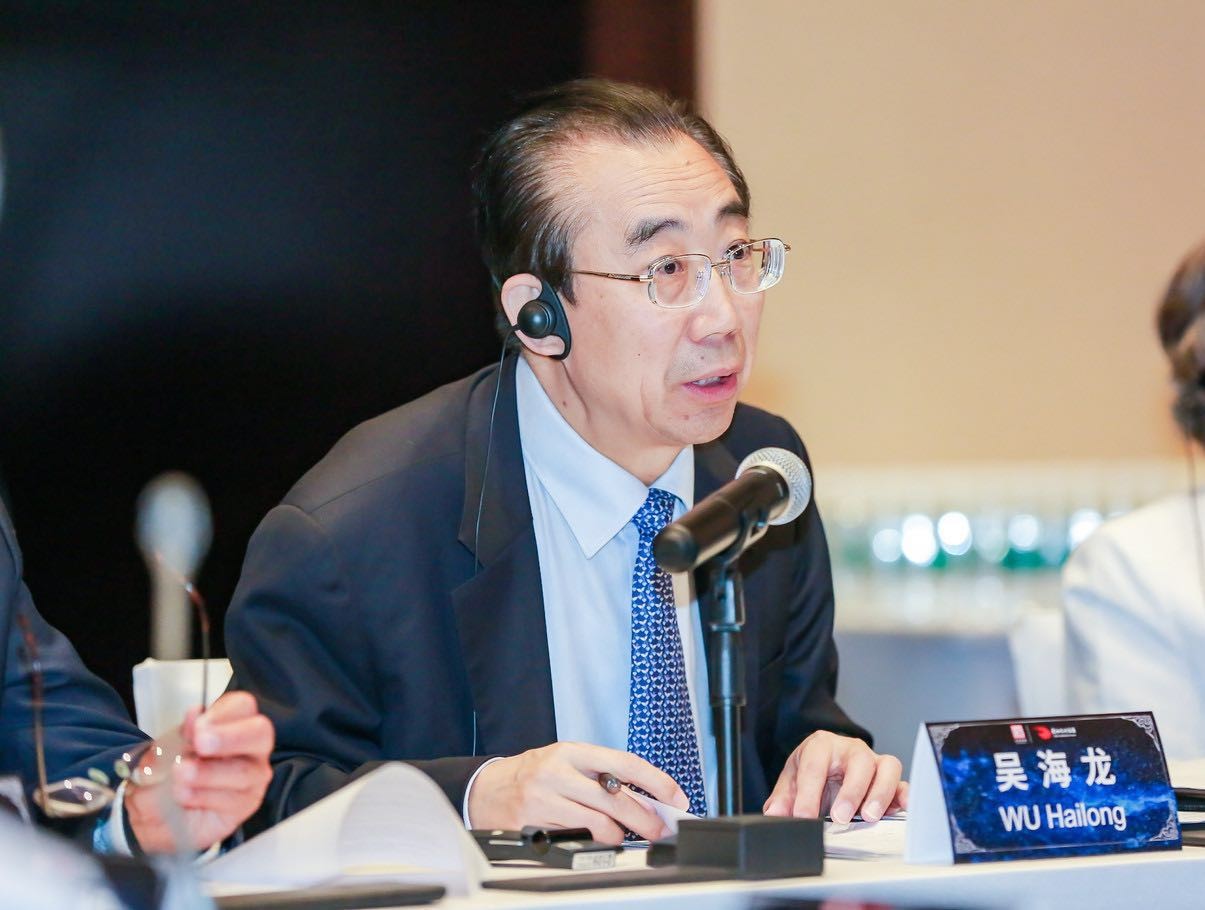
President of the Chinese People’s Institute of Foreign Affairs, Mr. WU Hailong
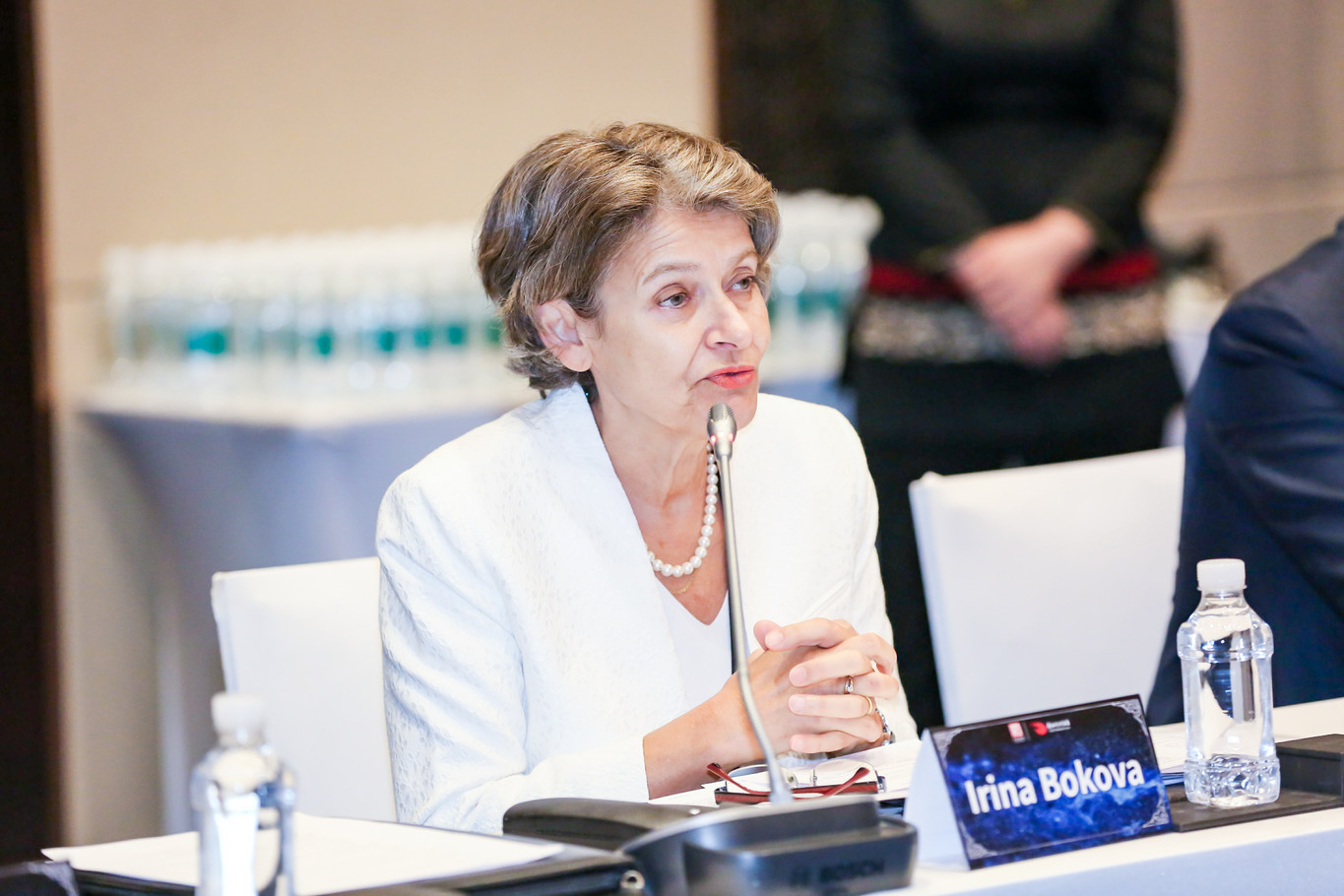
the Chair of the 2nd Taihe Civilizations Forum, Senior Fellow of the Taihe Institute, and the former Secretary General of UNESCO, Irina Bokova
The discussions in the morning centered on “the new paradigm of people-to-people exchange”. Irina Bokova, the Chair of the 2nd Taihe Civilizations Forum, Senior Fellow of the Taihe Institute, and the former Secretary General of UNESCO, emphasized that the Silk Road should enable both the exchange of trade and culture. For her, culture is comprised of many fields, including cultural traditions, arts, languages, sciences, or religions, all of which create meaningful human interaction and legacies. She considered it possible for the Belt and Road Initiative to draw on the past experience to enable people of different nations to communicate more and reach a better understanding about each other.
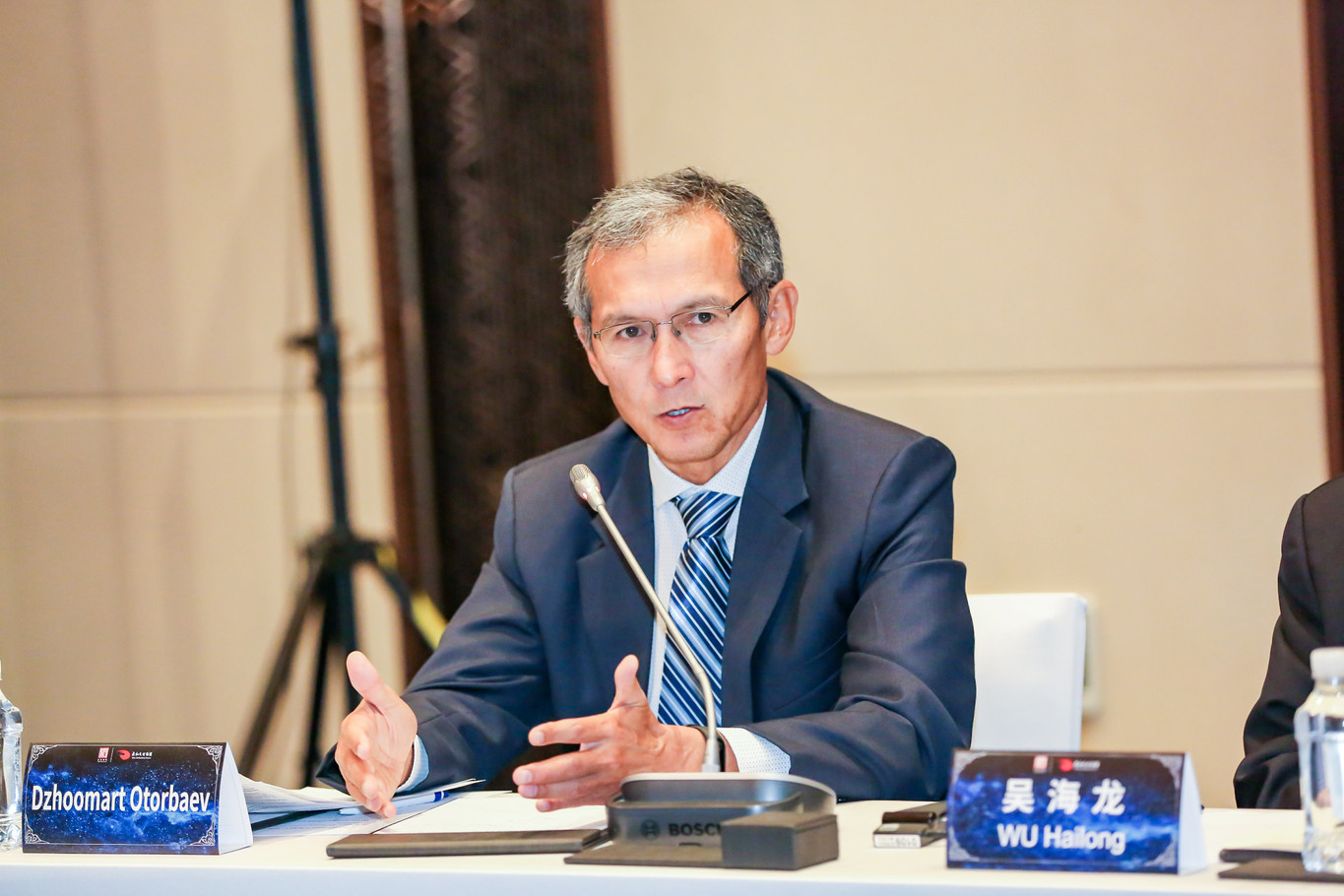
The Former Prime Minister of the Kyrgyz Republic, Dzhoomart Otobaev
Likewise, Dzhoomart Otobaev, the Former Prime Minister of the Kyrgyz Republic, pointed out that in pushing forward the Belt and Road Initiative, the Chinese government should focus not only on investing in infrastructure, but also promoting exchanges with the local people and recognizing their demands. This will help China to improve its cultural exchange efforts.
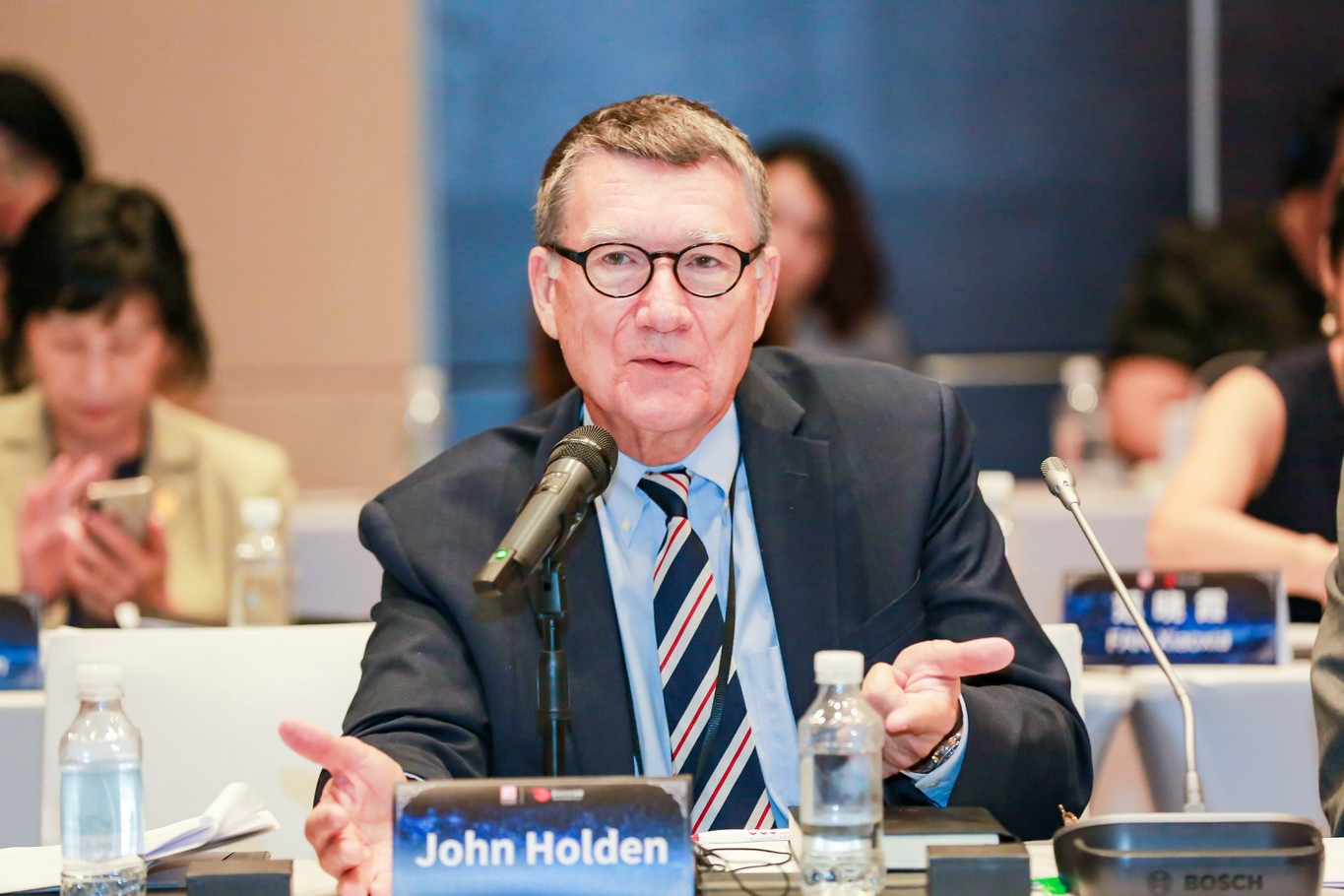
The President & CEO of the U.S.-China Strong Foundation, John Holden
John Holden, the President & CEO of the U.S.-China Strong Foundation, observed that the purpose of cultural exchange is to enhance mutual learning and understanding. Media and technological innovation play an important role in this process.
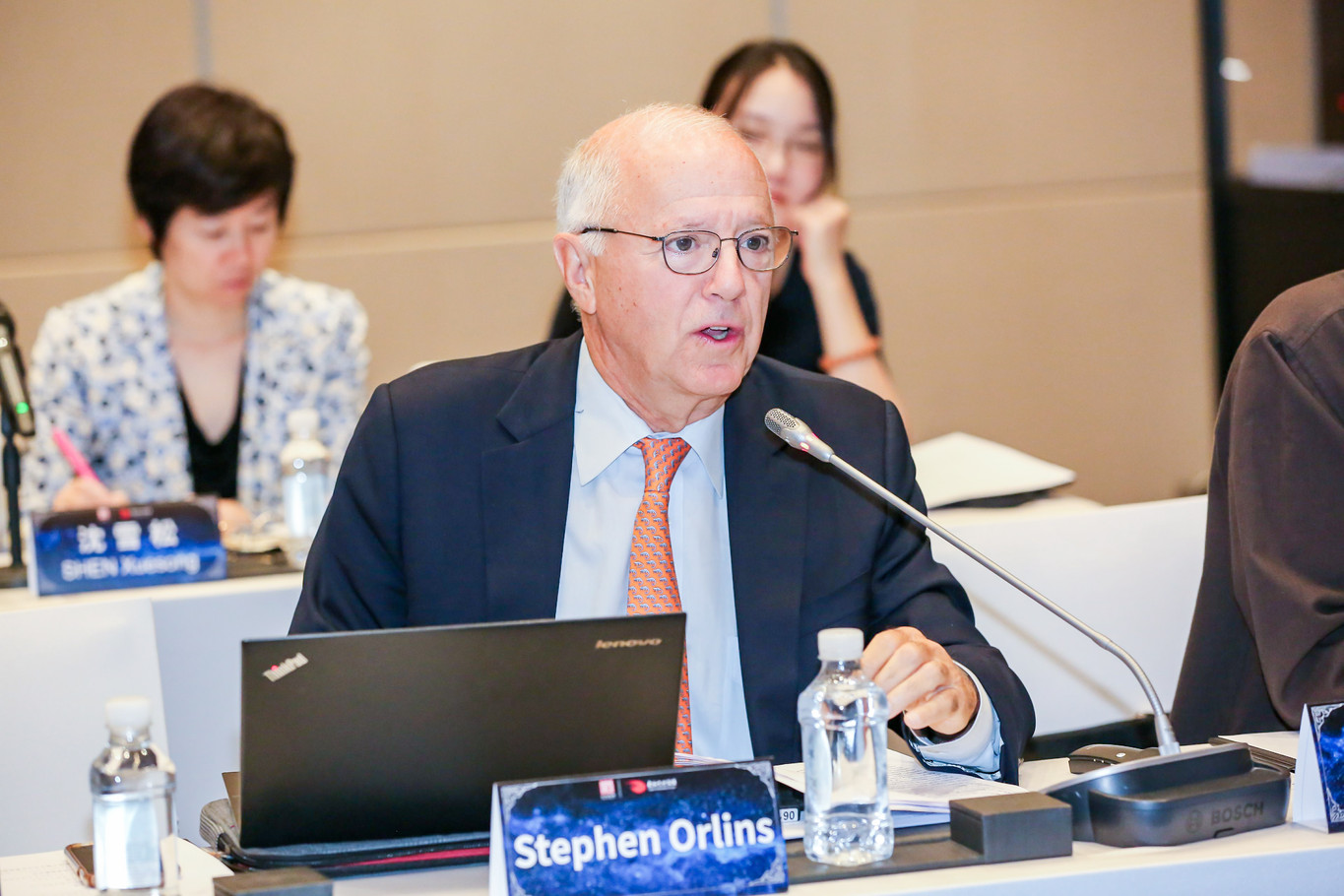
The President of National Committee on U.S.-China Relations and an active promoter of Sino-US people-to-people exchange since decades, Stephen Orlins
Stephen Orlins, the President of National Committee on U.S.-China Relations and an active promoter of Sino-US people-to-people exchange since decades, suggested that the two governments, against the new global backdrop, should recall the “ping-pong diplomacy” of the past. This was a period of successful rapprochement.
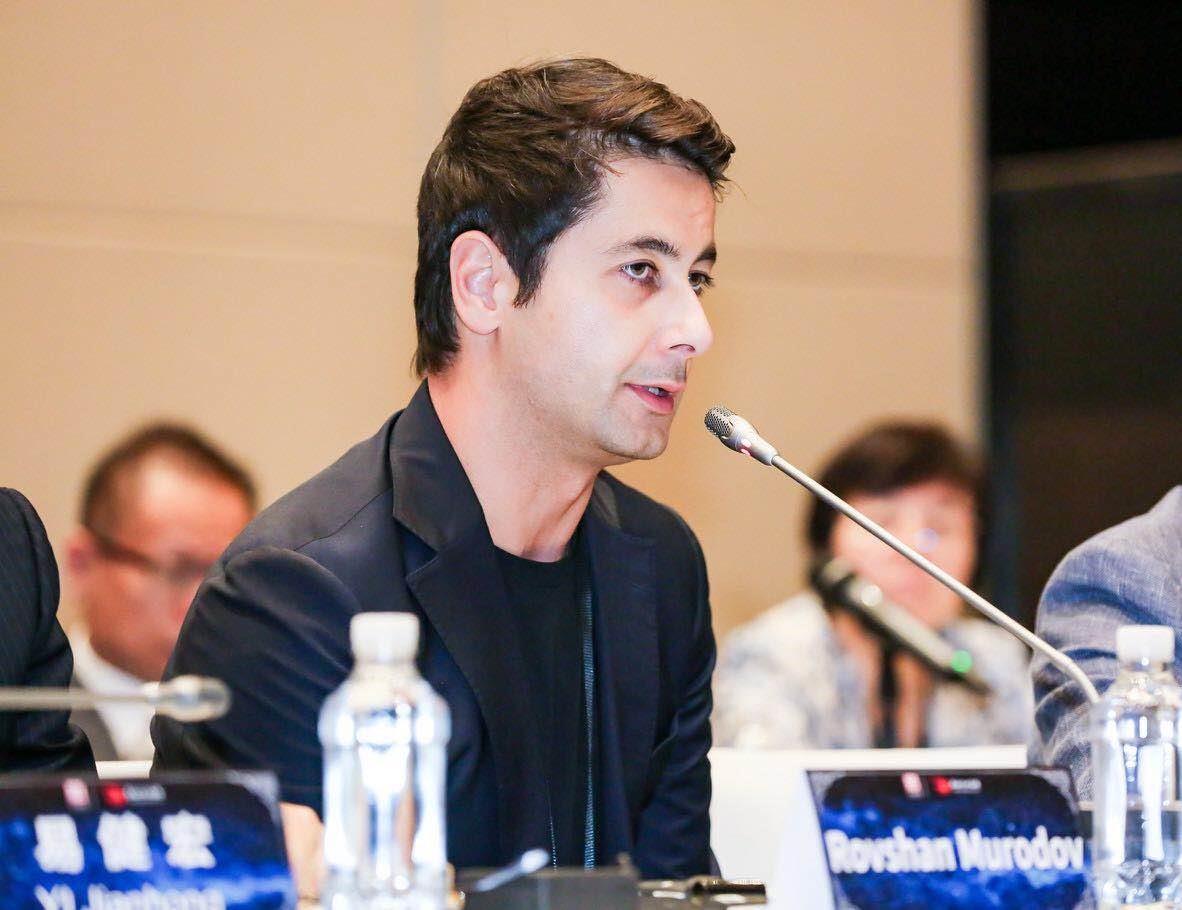
Secretary-General of Nizami Ganjavi International Center, Rovshan Muradov
Rovshan Muradov, Secretary-General of Nizami Ganjavi International Center, highlighted that the Nizami Center has been working on the exchanges between China and the Caucasian region and now considers expanding their work to more countries.
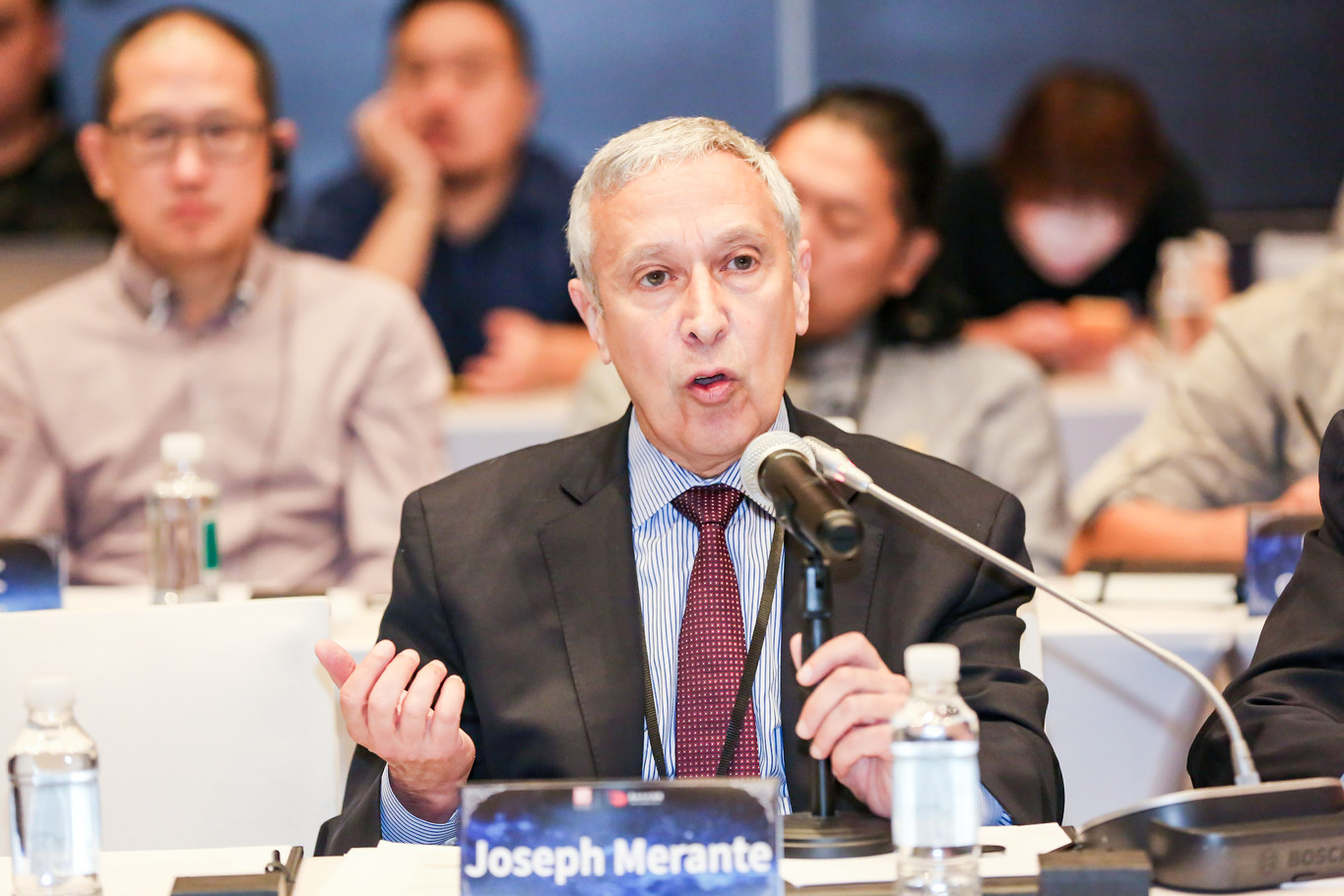
The CEO of Humpty Dumpty Institute, Joseph Merante
Joseph Merante, the CEO of Humpty Dumpty Institute, reported on the institute’s cooperation with Chinese businesses, such as Perfect World, and the development of cultural and academic exchange programs.
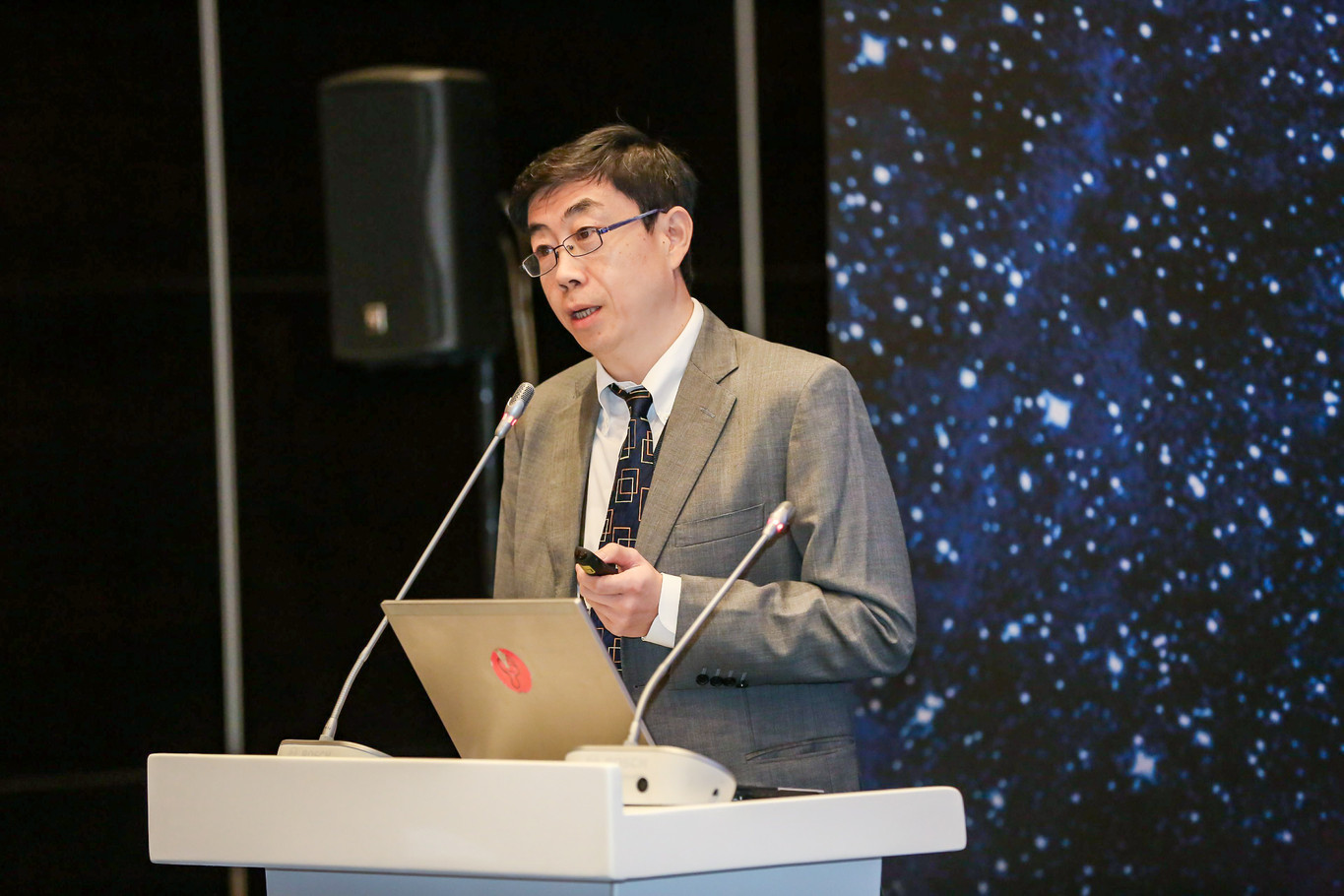
Professor at the School of International Studies of Peking University, ZHAI Kun
ZHAI Kun, Professor at the School of International Studies of Peking University, proposed that “two hands” are required to implement the Belt and Road Initiative successfully: the “visible hand,” which relates to policies of the Belt and Road’s “Five Dimensions of Connectivity,” and the “invisible hand” of domestic and international market dynamics. Based on the Belt and Road Connectivity Index report, Professor ZHAI highlighted that progress has also been made regarding cultural exchanges.
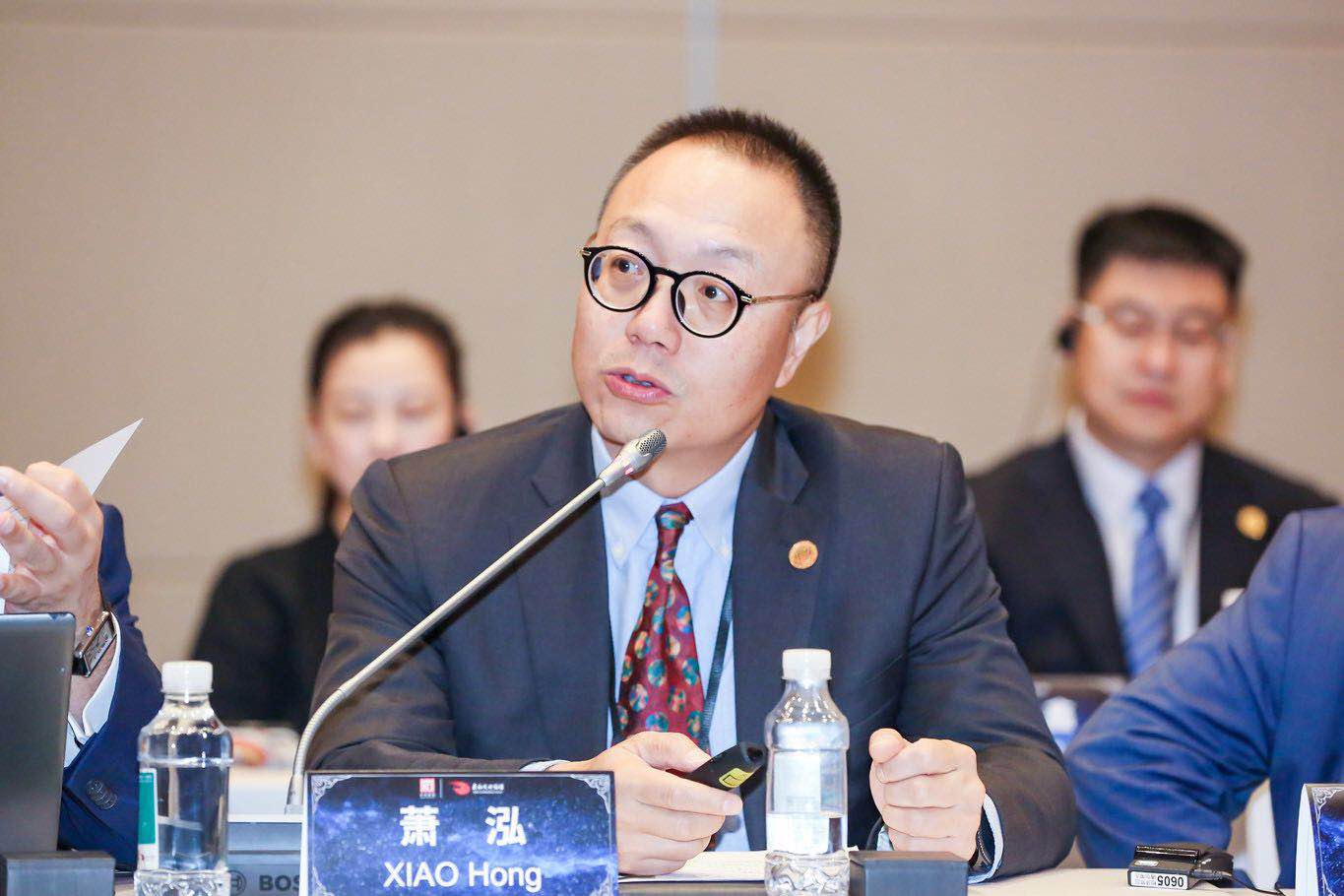
CEO of Perfect World, XIAO Hong
Taking Hollywood and his company as an example, XIAO Hong, CEO of Perfect World, reminded the audience of the contribution of businesses towards cultural exchange.
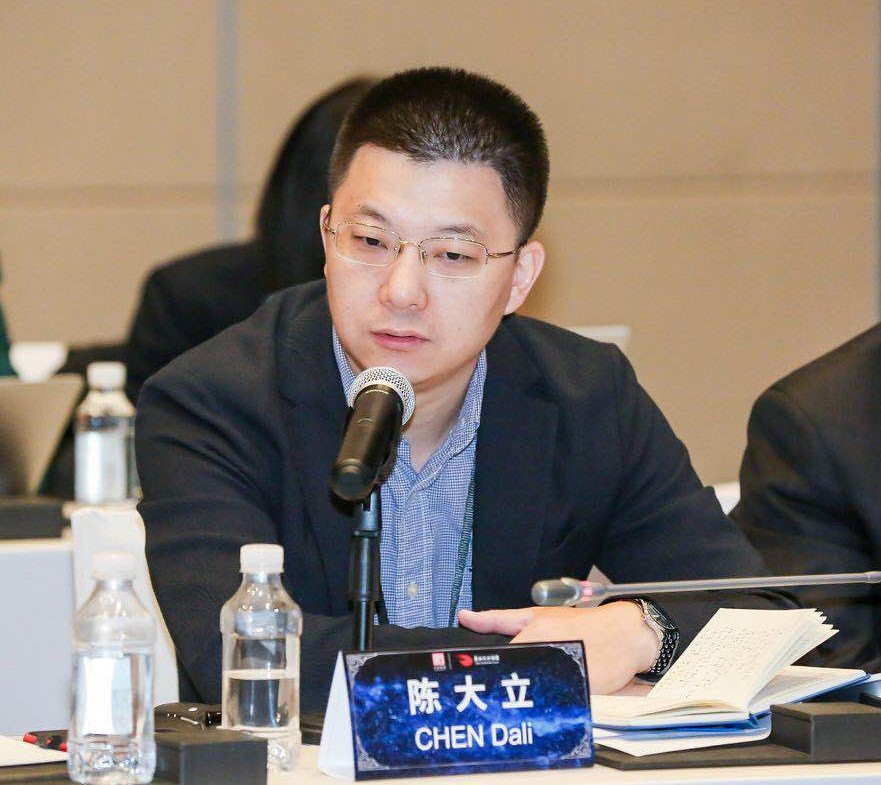
Director of the Division of American and Oceanian Affairs at the Department of International Cooperation and Exchanges of the Ministry of Education, CHEN Dali
CHEN Dali, Director of the Division of American and Oceanian Affairs at the Department of International Cooperation and Exchanges of the Ministry of Education, remarked that the exchange between China and America is stable, but that both countries must continue supporting a collaborative environment and further cultivate the exchange especially between young people.
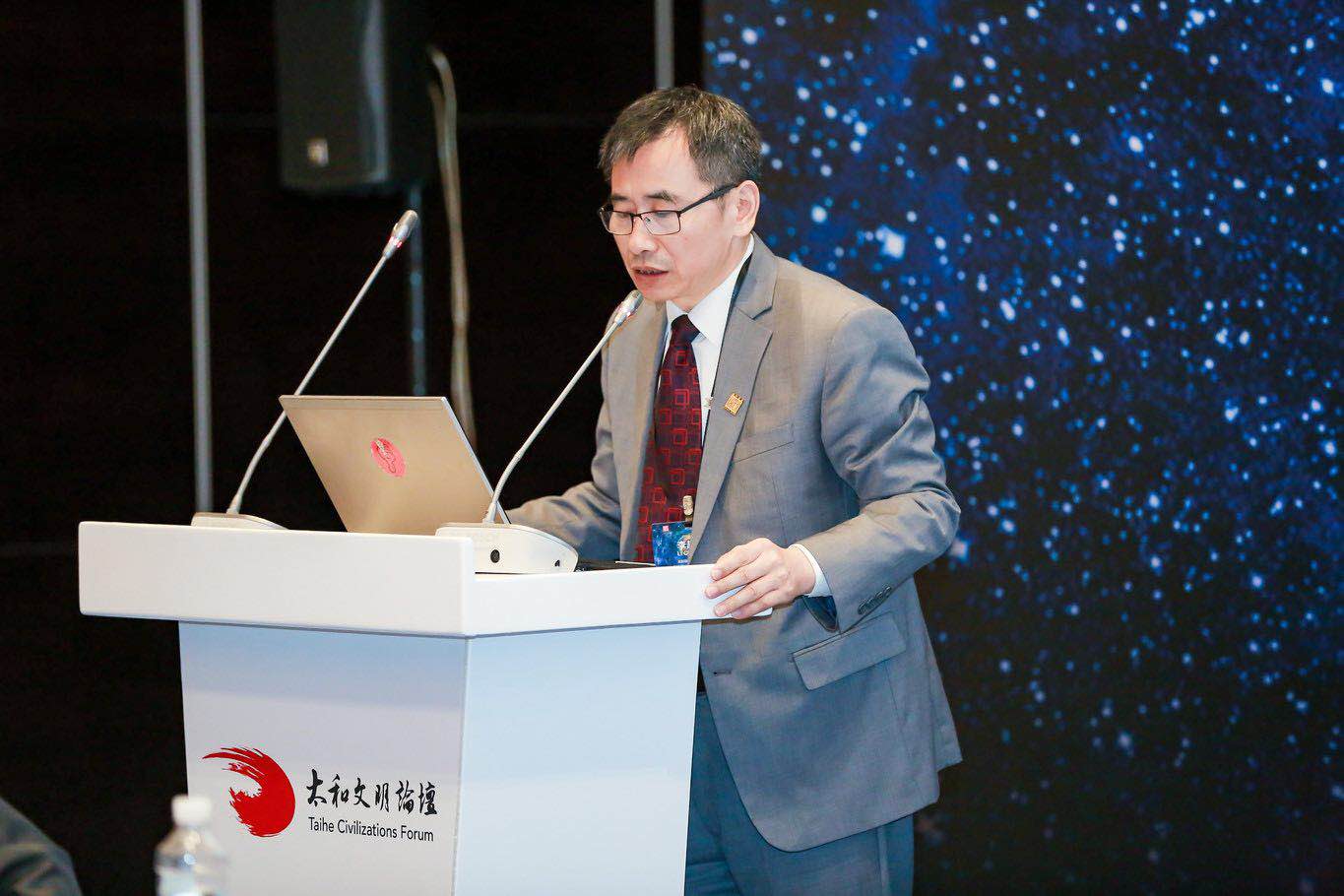
Senior Researcher of Taihe Institute, LI Chaomin
LI Chaomin, Senior Researcher of Taihe Institute, provided an empirical account on the gap in the mutual understanding between China and America, and also suggested that education of young generations is a sustainable way to enhancing mutuality and coexistence.
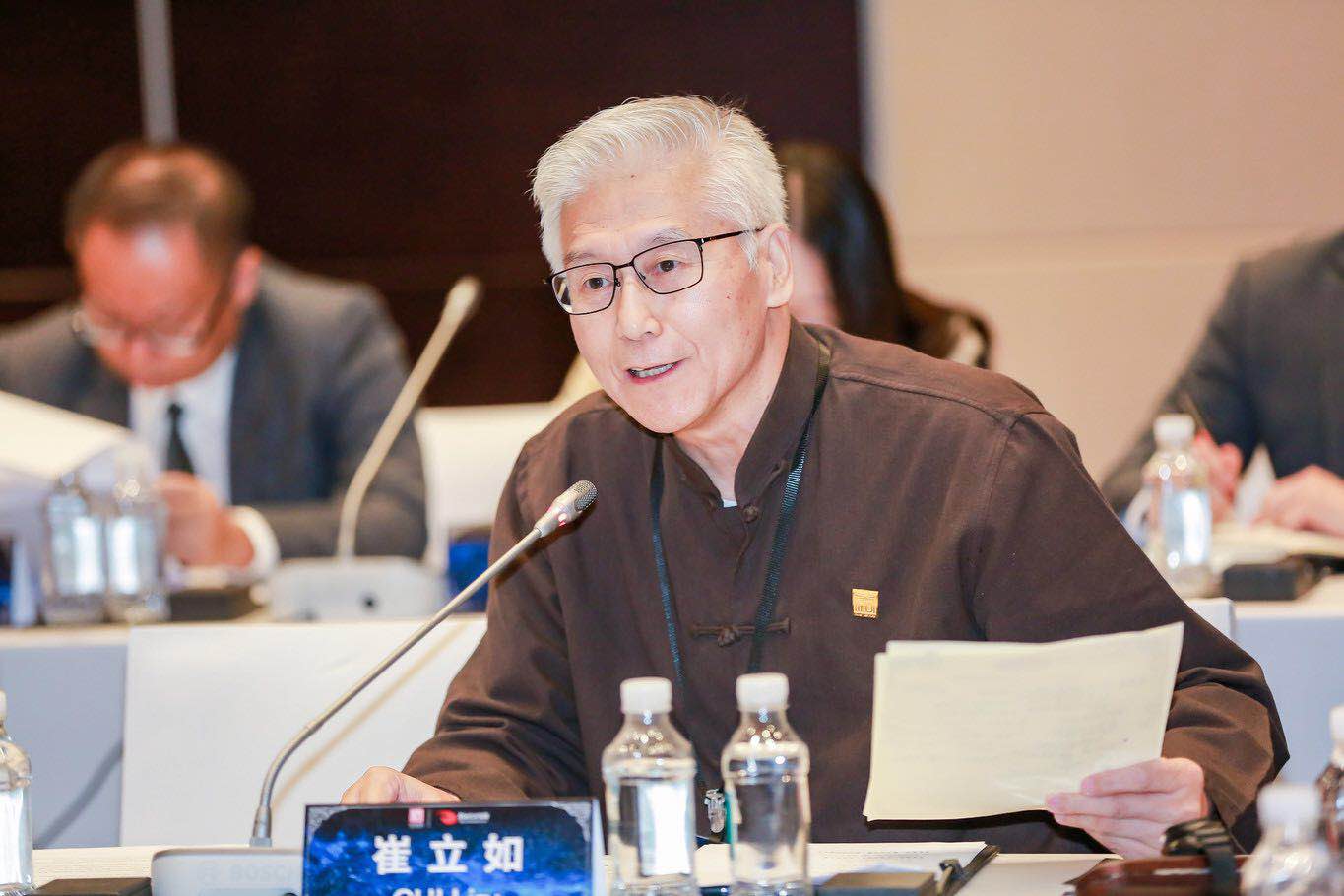
Senior Researcher of Taihe Institute and Former President of the China Institutes of Contemporary International Relations, CUI Liru
During the discussions about the second theme, CUI Liru, Senior Researcher of Taihe Institute and Former President of the China Institutes of Contemporary International Relations, talked about how to establish strategic mutual trust between China and the U.S. based on a framework of common values. He believes that relations between both countries is in transition and that previous trust has been undermined. The solution is a new strategic consensus that promotes a common ground while putting aside differences at the levels of human exchange.
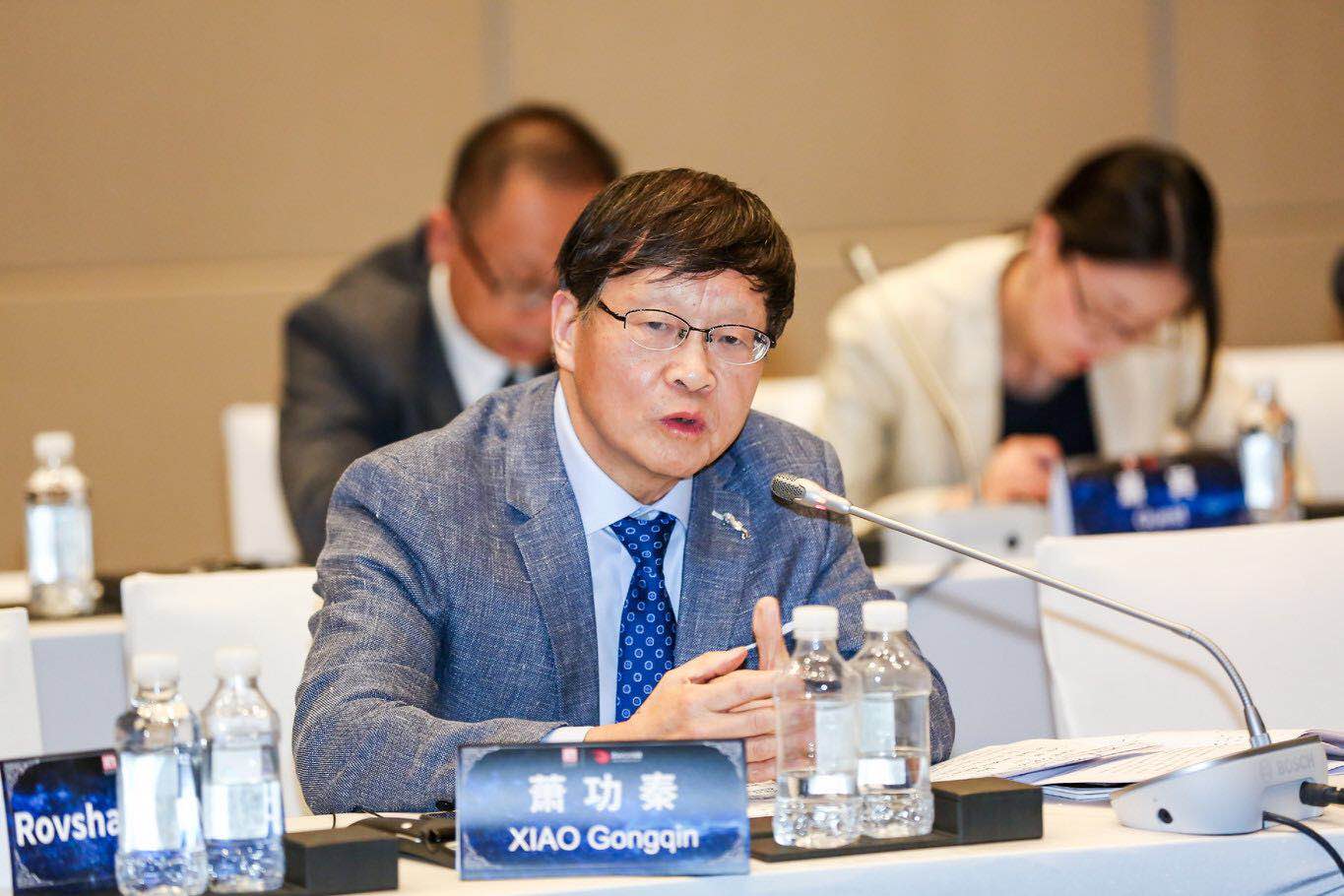
Professor of History Department at the College of Humanities and Communications of Shanghai Normal University, XIAO Gongqin
XIAO Gongqin, Professor of History Department at the College of Humanities and Communications of Shanghai Normal University, sparked hope through referring to history. He suggests that lessons must be drawn from history to avoid vicious interactions between China and America.
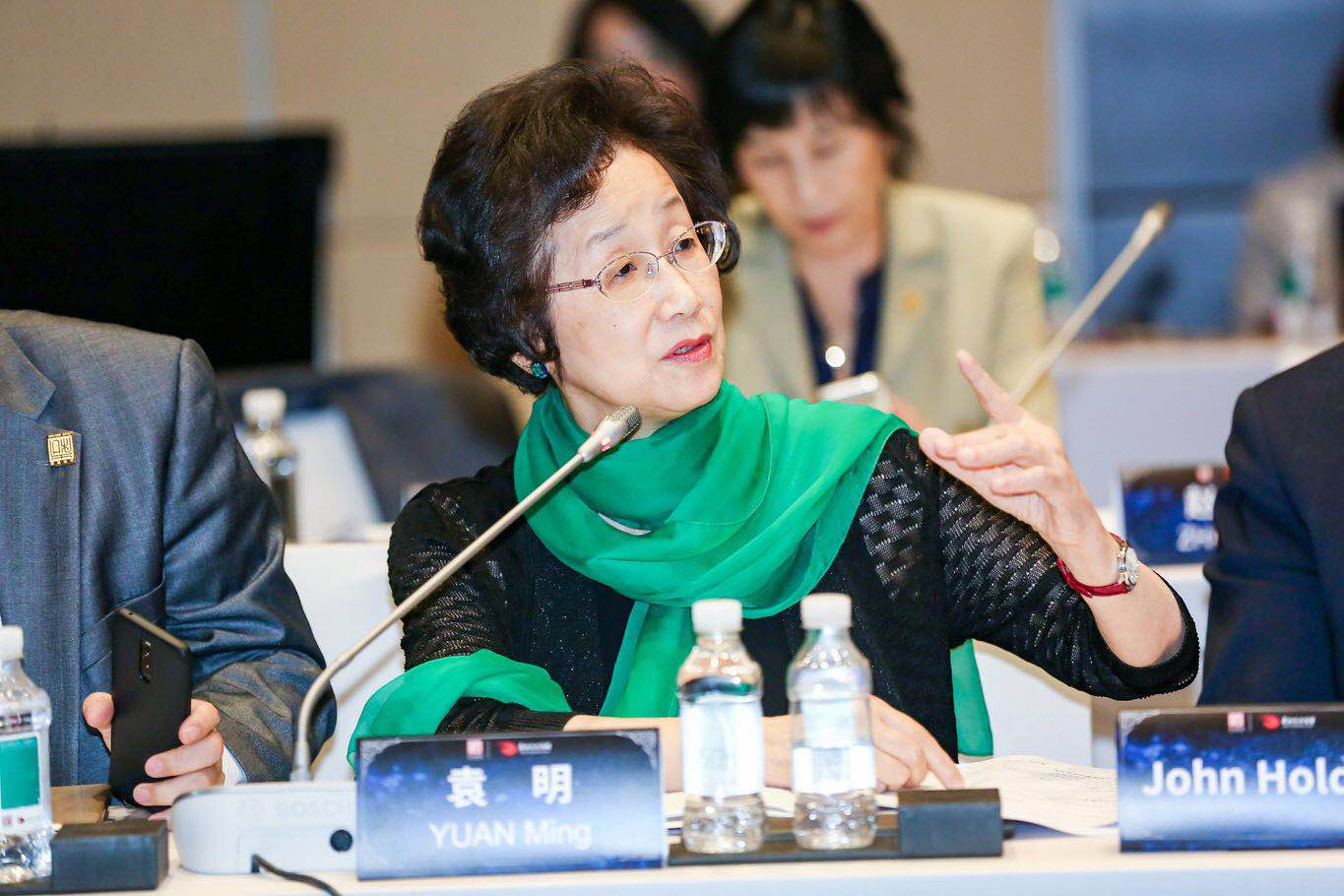
Dean of Yenching Academy at Peking University, YUAN Ming
YUAN Ming, Dean of Yenching Academy at Peking University, is an old friend of Joseph Nye who coined the notion of “soft power”. In her speech, she highlighted that China’s and America’s interpretation of the concept differs.
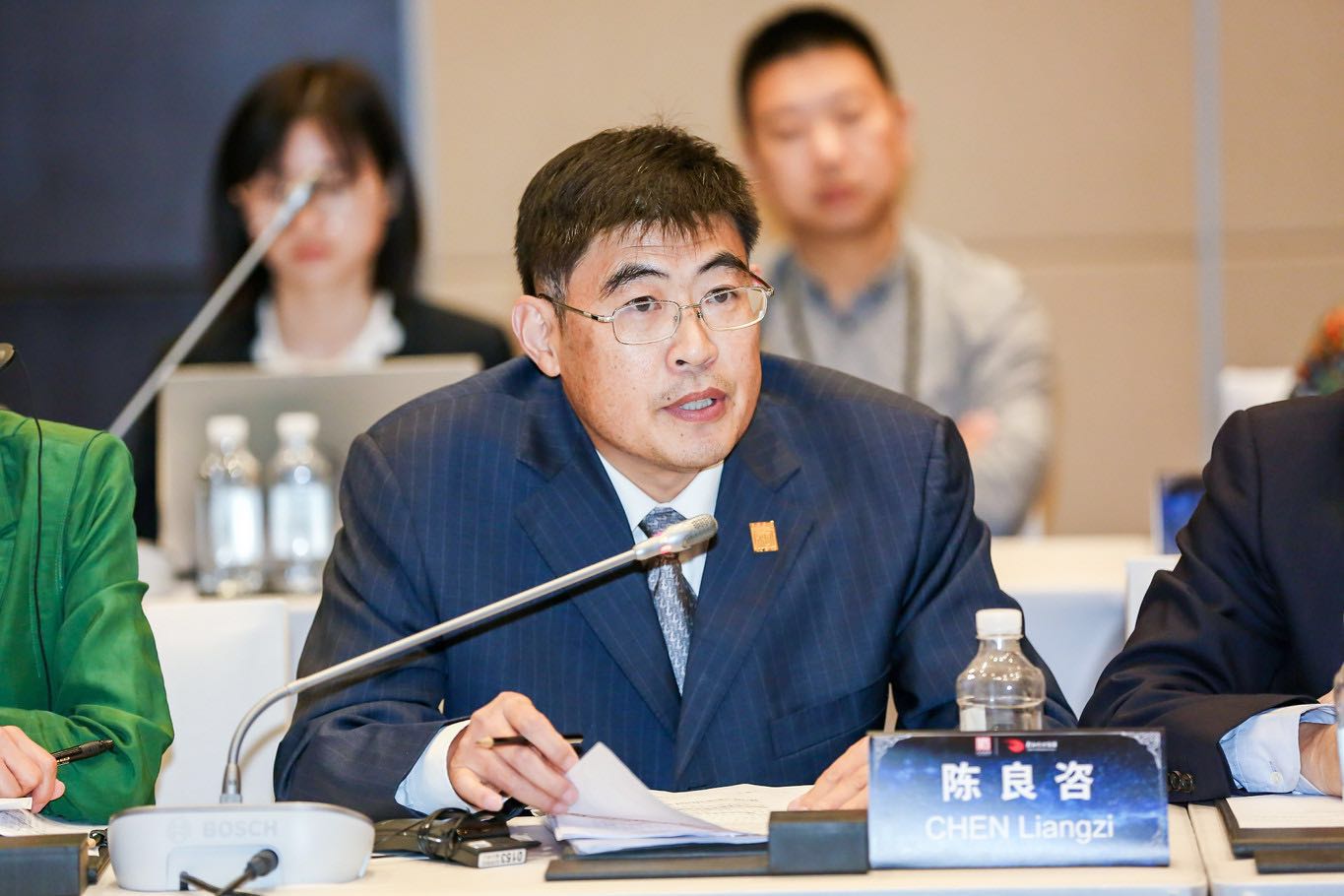
Senior Researcher of Taihe Institute, CHEN Liangzi
CHEN Liangzi, Senior Researcher of Taihe Institute, expanded the discussion to the relationship between China and the Islam in ancient times, which, according to him, was a precious one and from which the modern world could learn.
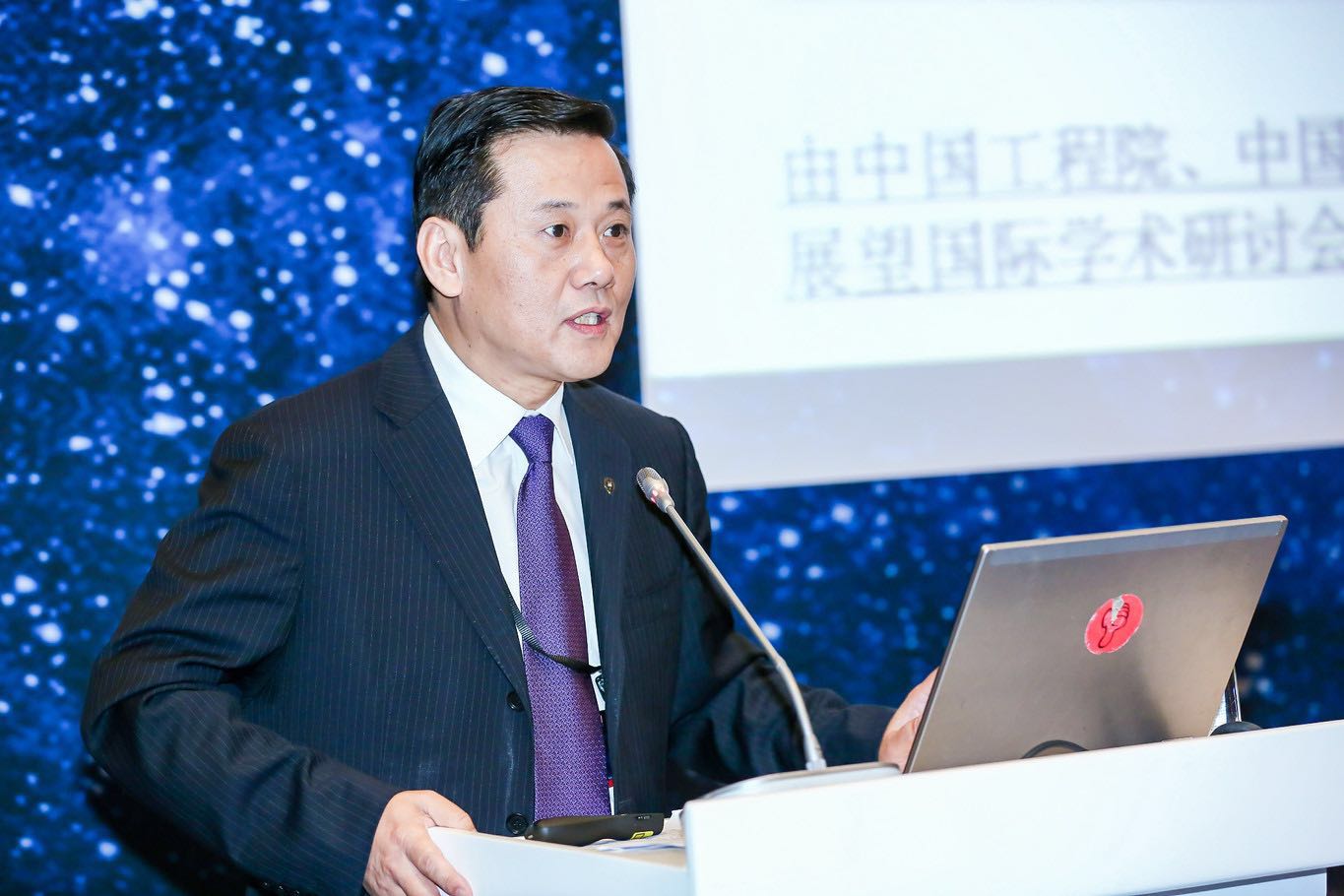
Vice President of Kunming University of Science and Technology, YI Jianhong
Starting his speech from the “Needham question” and referring to the Materials Genome Initiative, YI Jianhong, Vice President of Kunming University of Science and Technology, presented the benefits about the exchange between science and education.
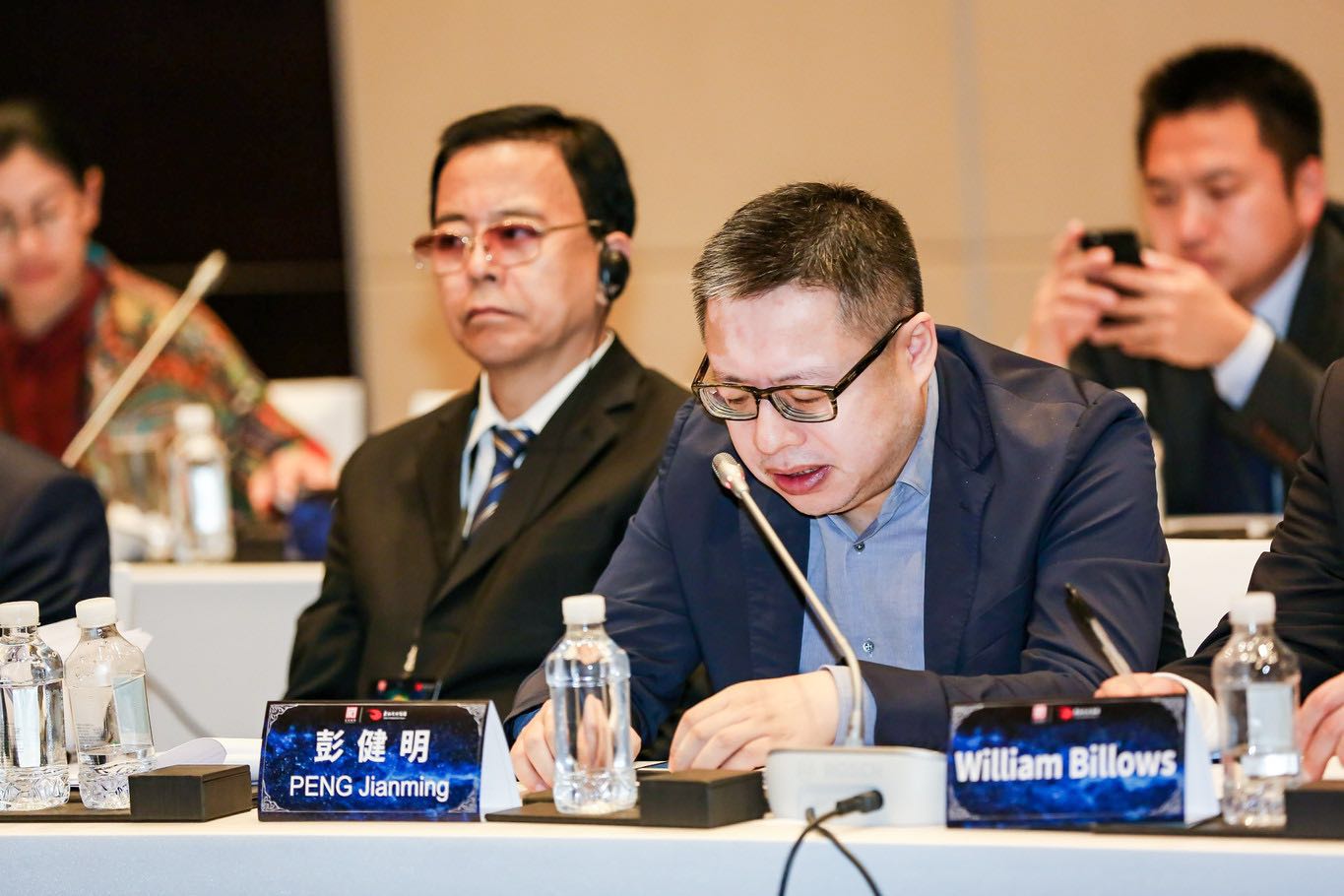
Deputy Editor-in-Chief of China Central Television, PENG Jianming
PENG Jianming, Deputy Editor-in-Chief of China Central Television, shared his observations from a media perspective on China’s change in cultural exchange and other areas since the reform and opening-up forty years ago.
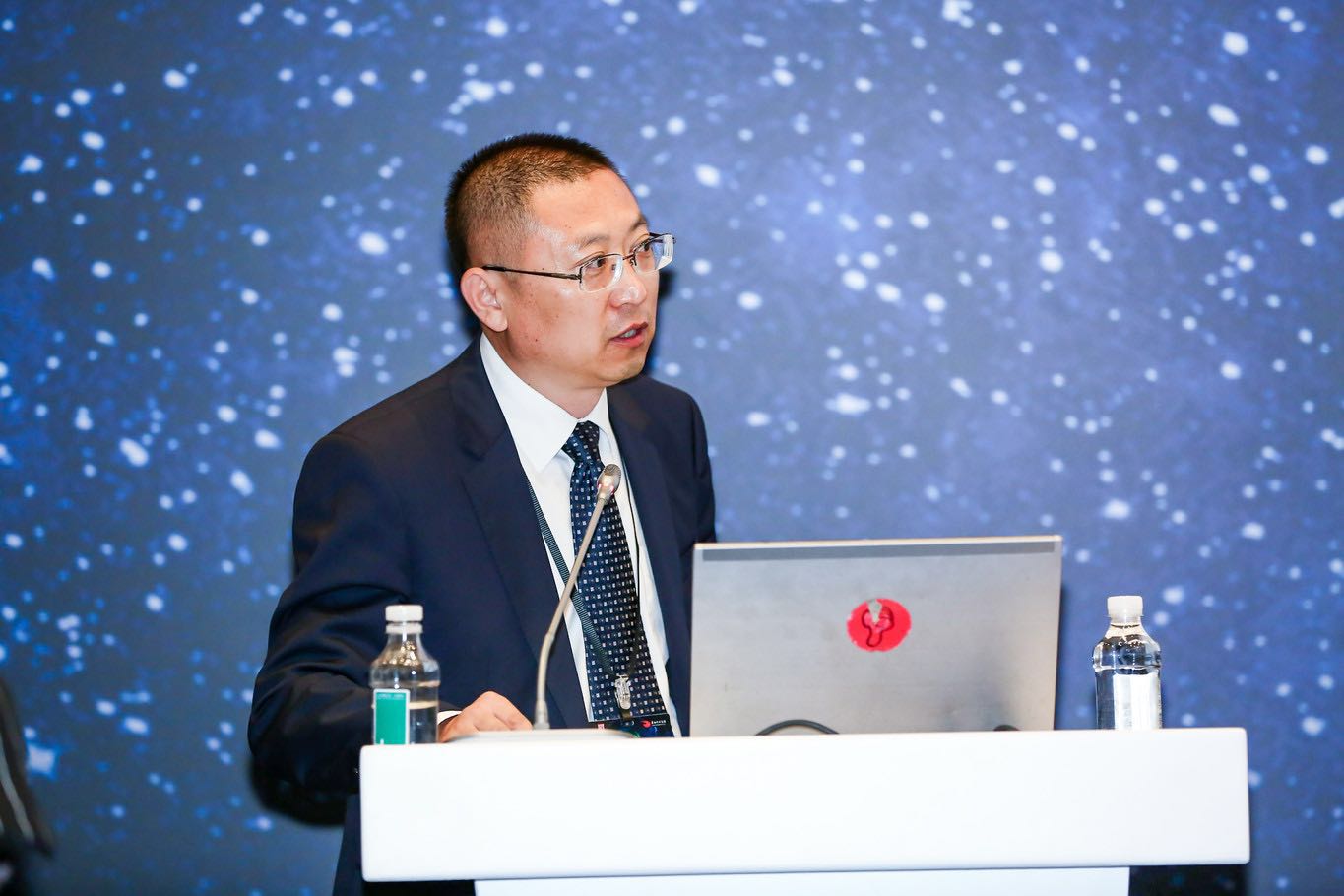
Editor-in-Chief of CITIC Publishing Group, QIAO Weibing
QIAO Weibing, Editor-in-Chief of CITIC Publishing Group, highlighted the role publishing played in people-to-people exchange and how the changes in the industry impact people-to-people exchange.
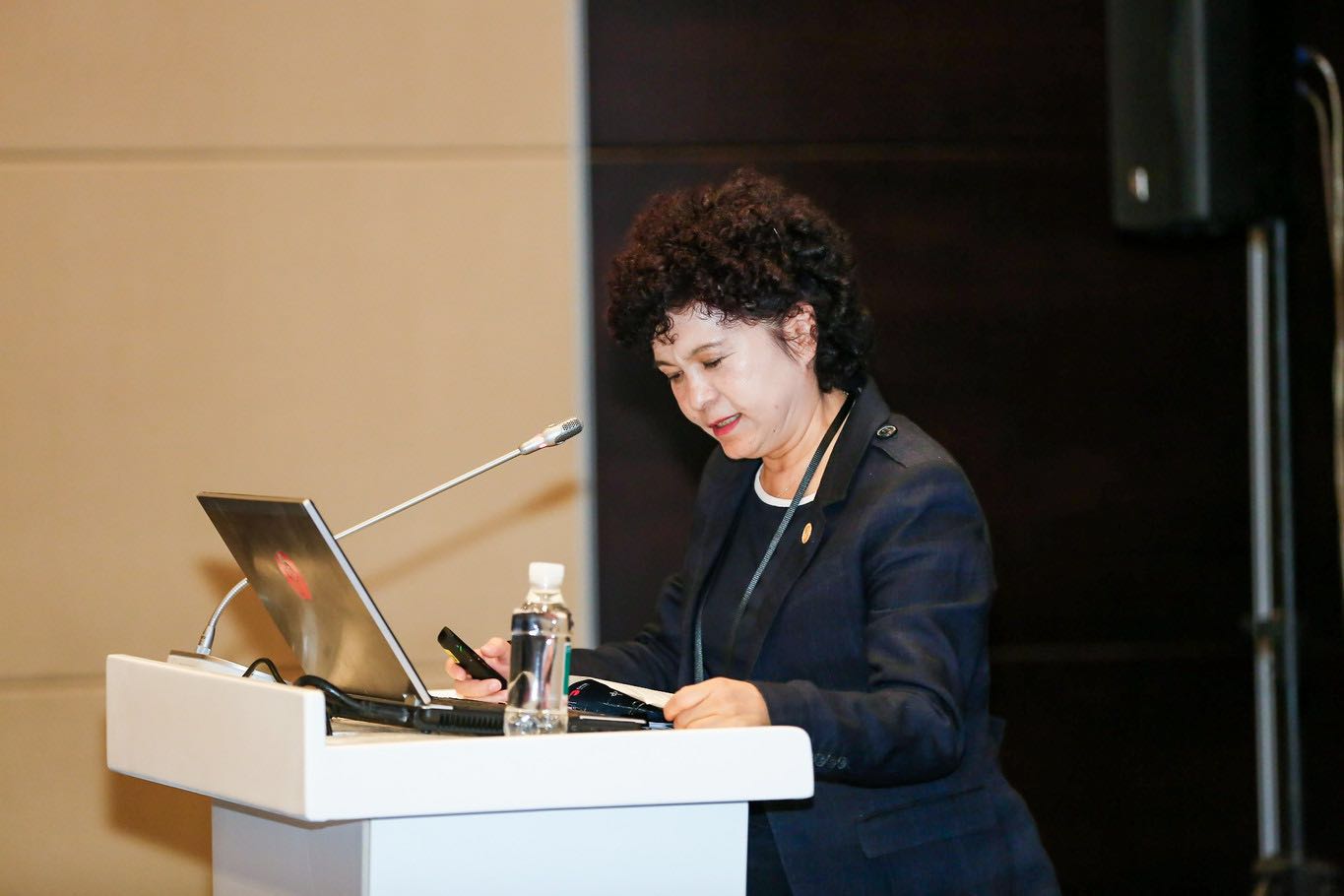
The art critic YU Nina
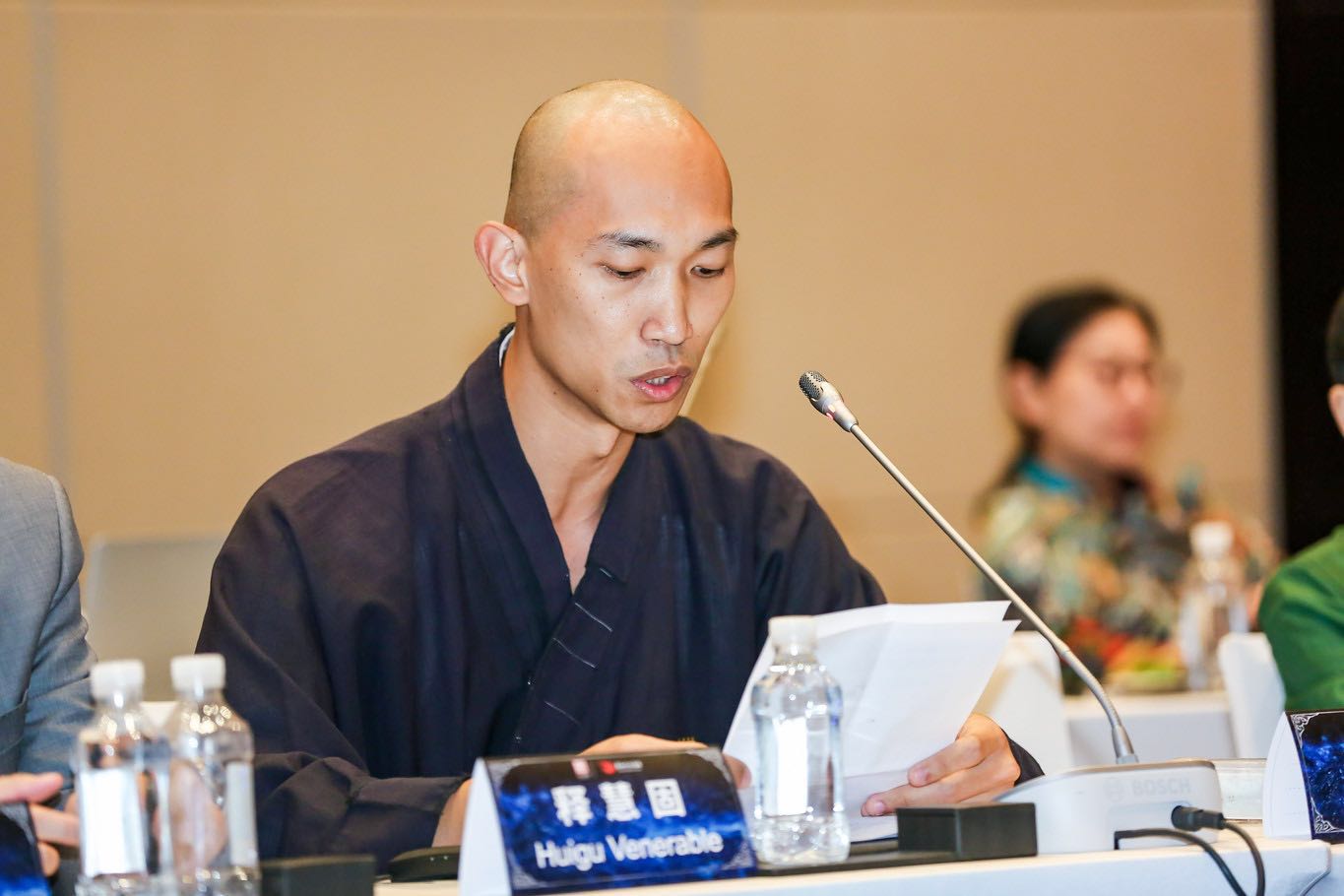
The Buddhist Monk SHI Huigu
The art critic YU Nina and the Buddhist Monk SHI Huigu, from Peking University, both expressed their ideas on differences and commonalities between China and the West regarding rich cultural artefacts such as paintings and teaism.
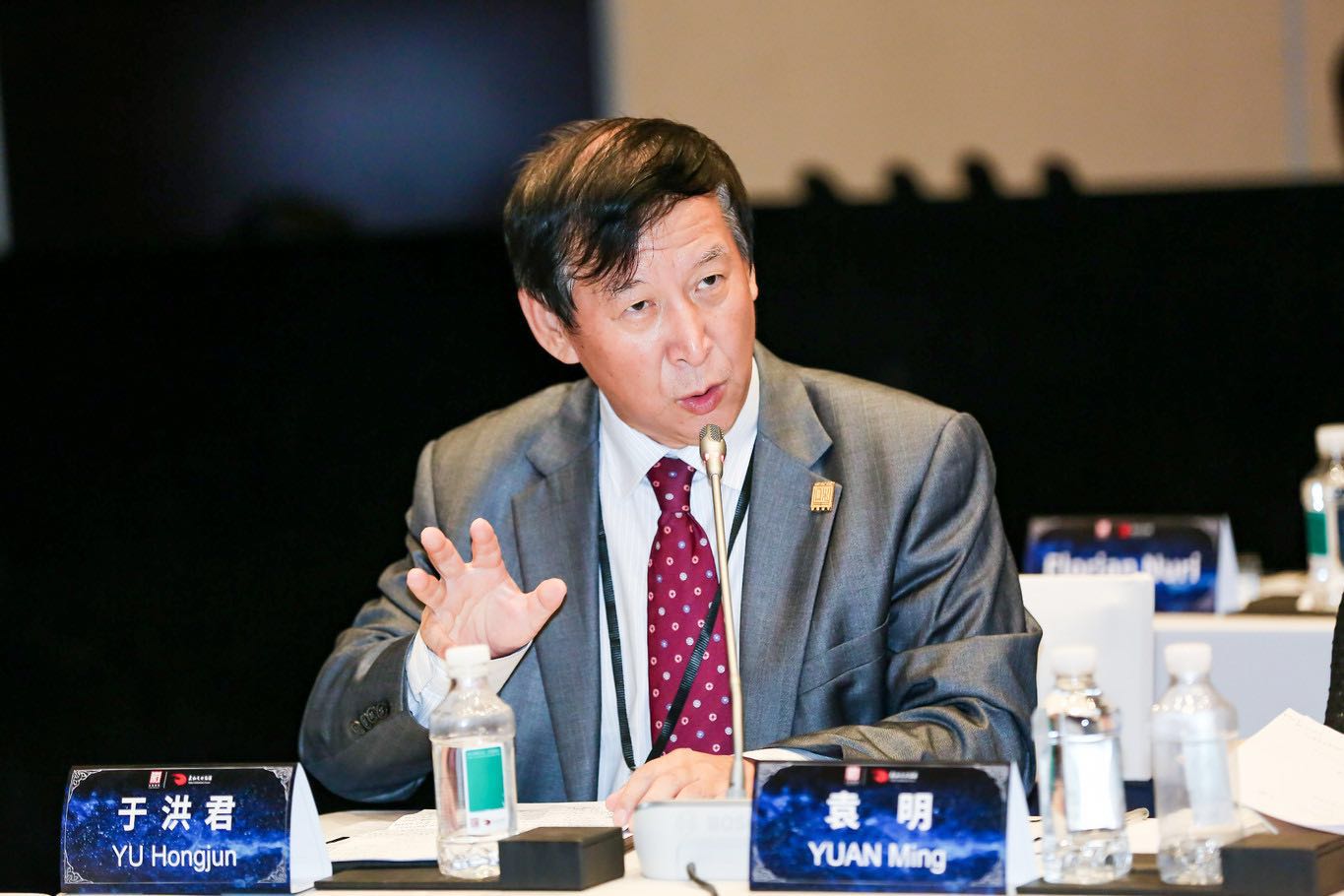
Senior Researcher of Taihe Institute and Former Deputy Minister of International Department, Central Committee of CPC, YU Hongjun
Inspired by the third and final theme “cultural exchange along the Belt and Road and the establishment of a community of shared future for mankind”, YU Hongjun, Senior Researcher of Taihe Institute and Former Deputy Minister of International Department, Central Committee of CPC, illustrated vividly that China should put emphasis on the export of modern Chinese culture. He initiated the term “Four Hua”, which are four concepts that could guide and inform this process: diversified subjects, rich contents, modern media, and down-to-earth methods.
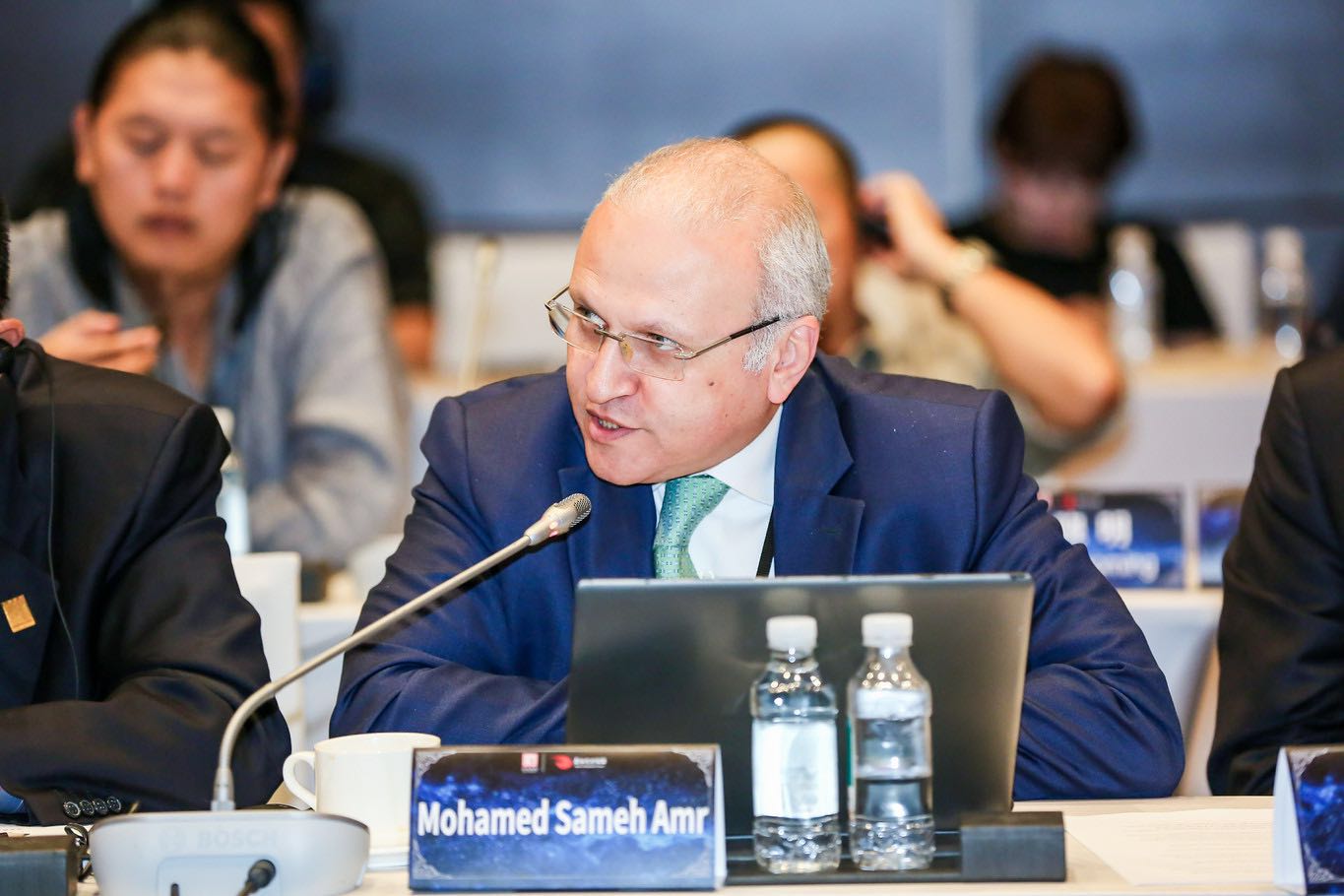
Professor of International Law Department at Cairo University, Mohamed Sameh Amr
Mohamed Sameh Amr, Professor of International Law Department at Cairo University, spoke about the Belt and Road Initiative from an Egyptian perspective and offered constructive advice on the Sino-African cultural exchange.
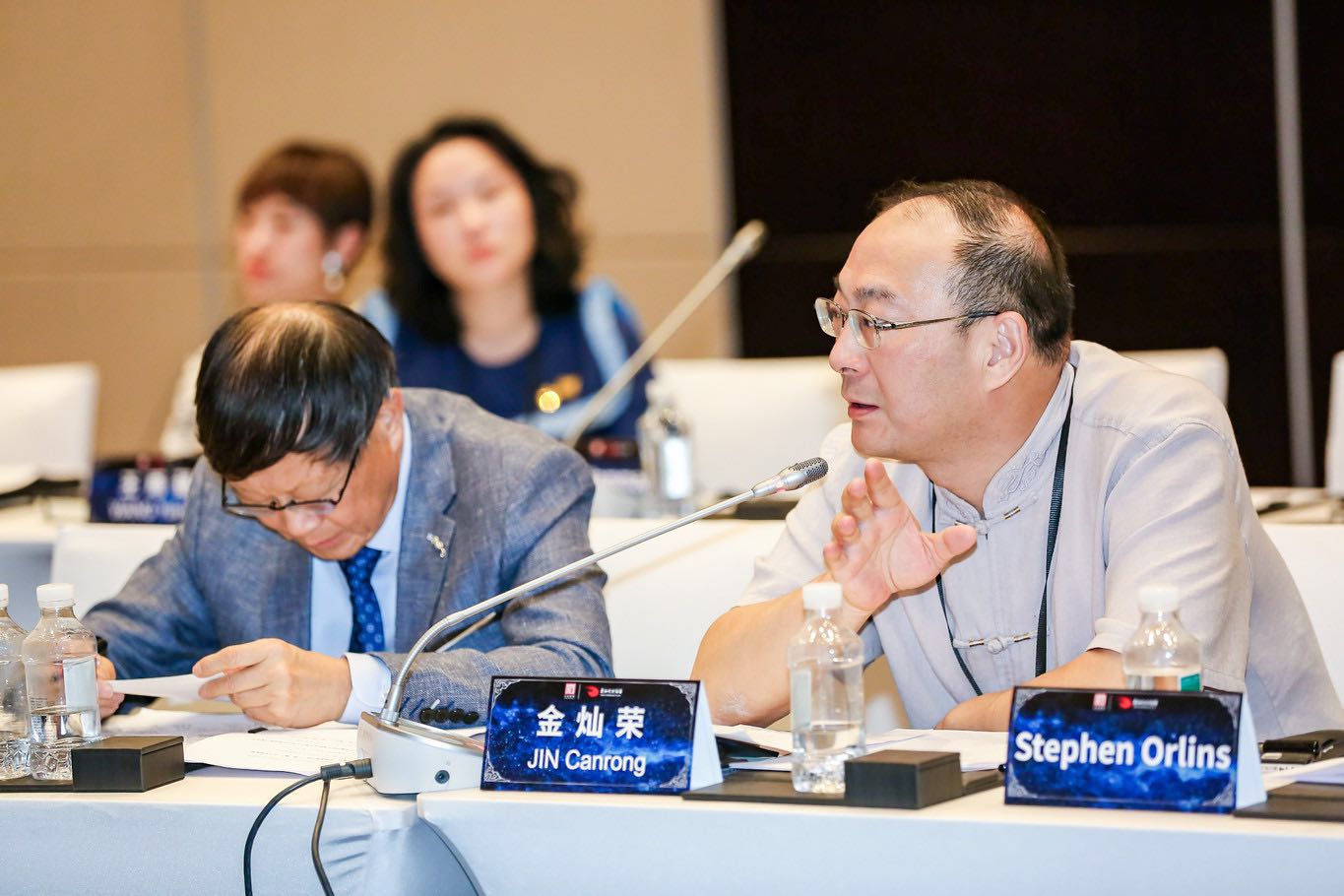
Associate Dean at School of International Studies, JIN Canrong
JIN Canrong, Associate Dean at School of International Studies, Renmin University of China, offered his analysis of global uncertainties and their root causes and predicted that China is likely to become America’s largest rival in the future and that Europe will increasingly lag behind in global competition.
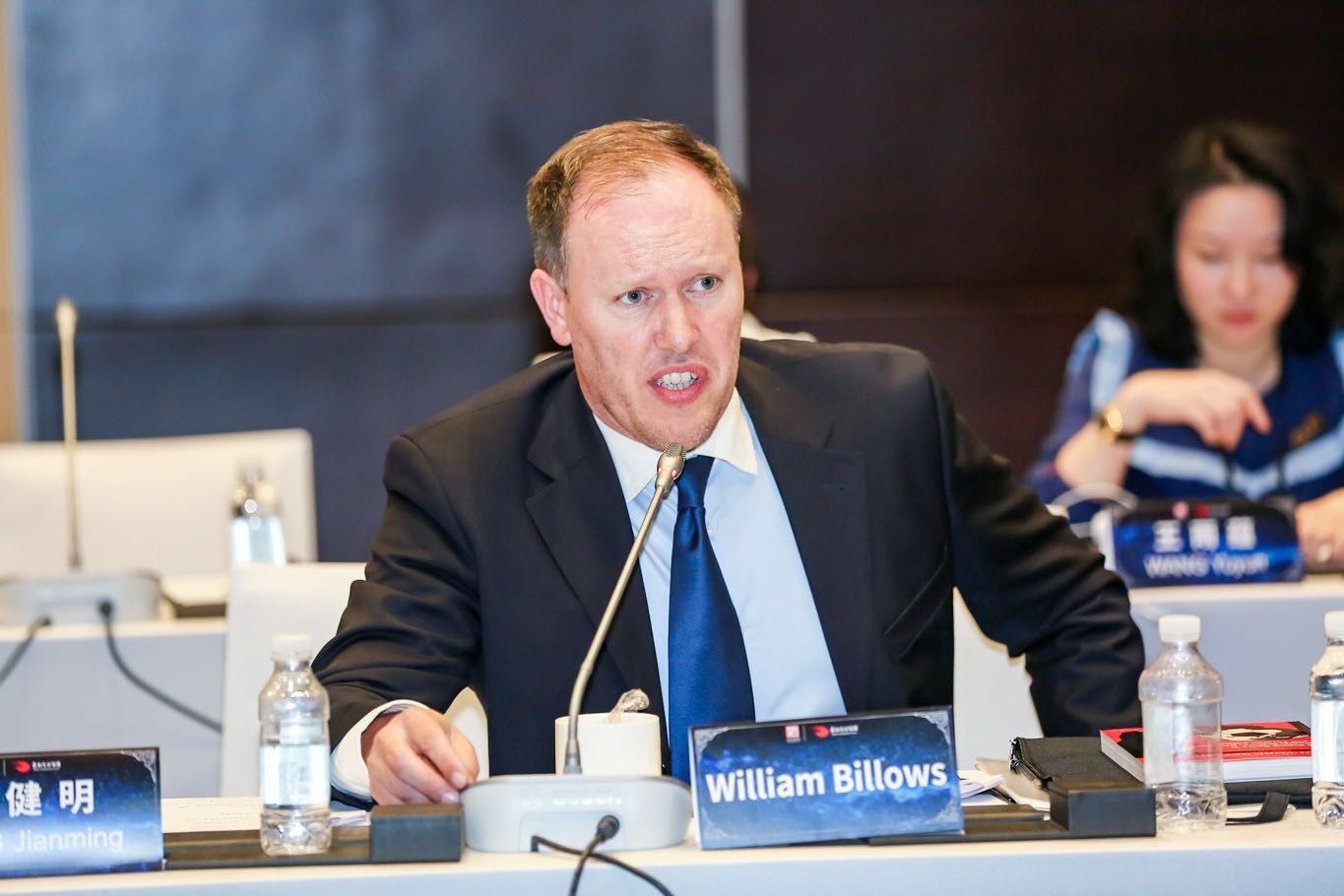
Project Editor of the “Culture Report EUNIC Yearbook”, William Billows
Here, however, William Billows, Project Editor of the “Culture Report EUNIC Yearbook” held a different view. He deemed that Europe is now changing its attitude and reshaping its role in the spread of culture to adapt to the globalized reality.
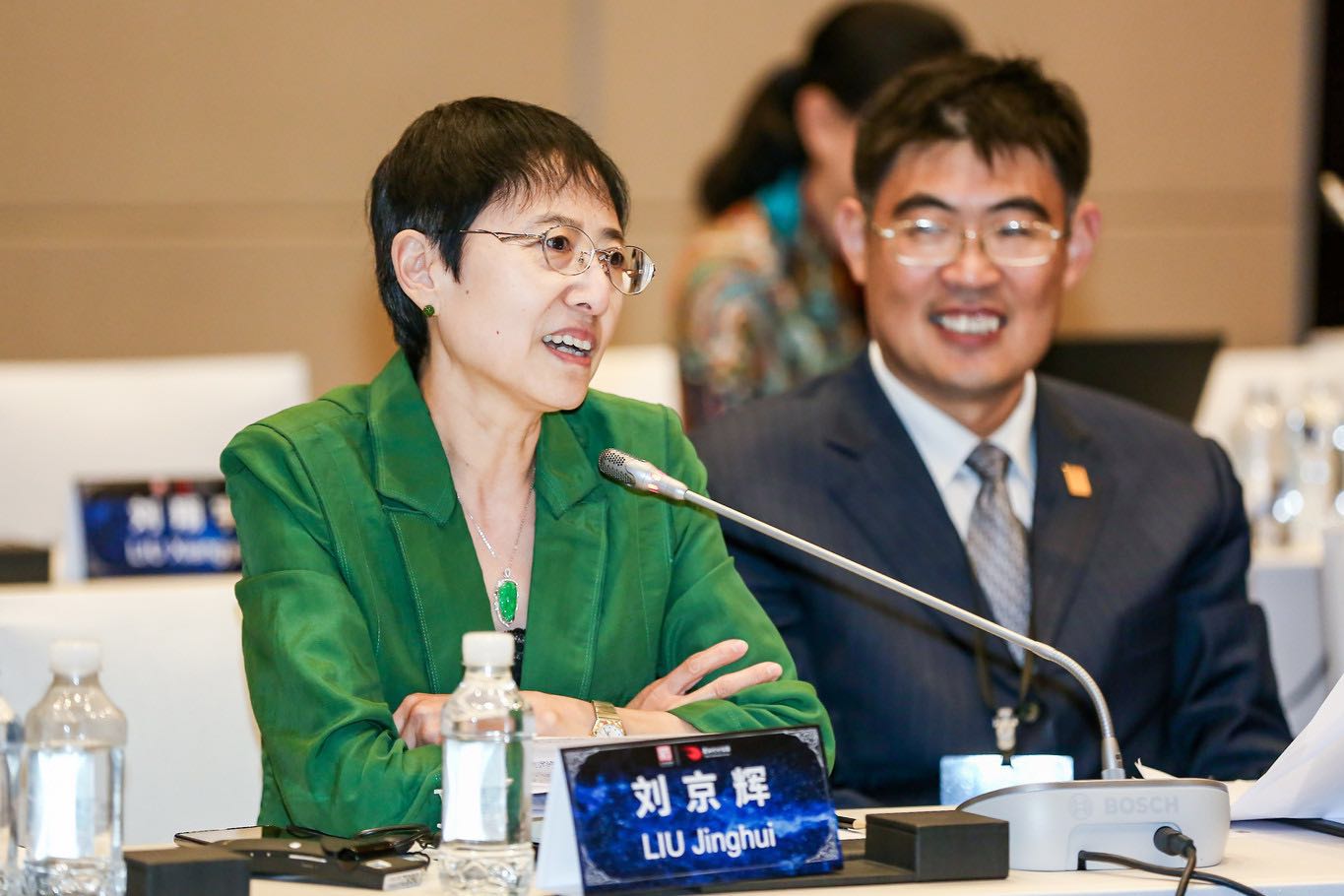
Senior Researcher of Taihe Institute and Former Secretary-General of China Scholarship Council, LIU Jinghui
Based on her own experience of having pursued overseas studies in Europe, LIU Jinghui, Senior Researcher of Taihe Institute and Former Secretary-General of China Scholarship Council, pointed out that the culture of Mainland Europe had made great contributions not only to Central Europe, but also to the rest of the world, and it would continue to prove its worth in the future.
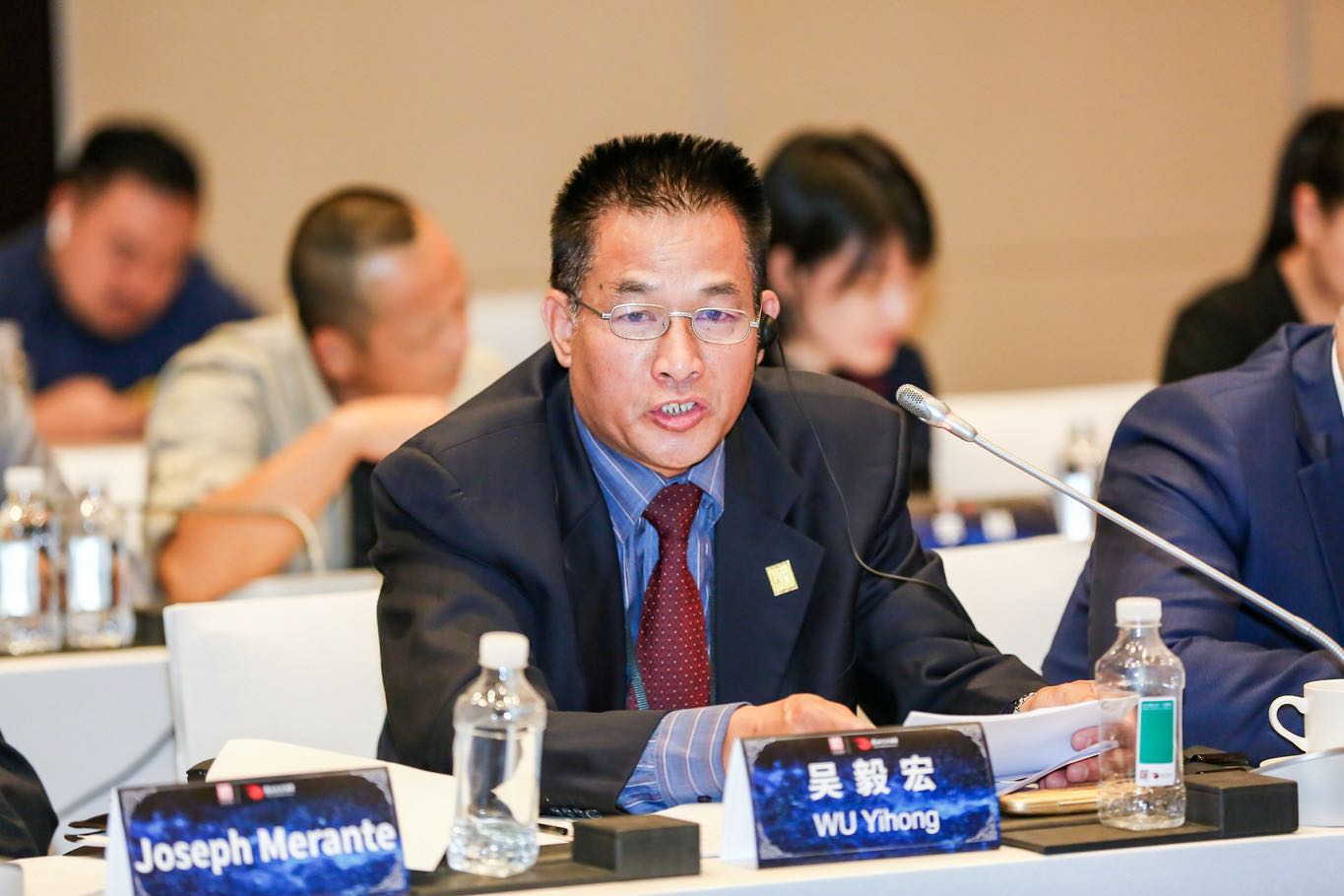
Senior Researcher of Taihe Institute and Former Chief of Middle East Bureau of Xinhua News Agency, WU Yihong
WU Yihong, Senior Researcher of Taihe Institute and Former Chief of Middle East Bureau of Xinhua News Agency, has worked in the Middle East for over two decades. After an introduction to the history of cultural exchange between China and Arabic countries, he talked about how the two sides see each other and how to improve the image of China in the Middle East.
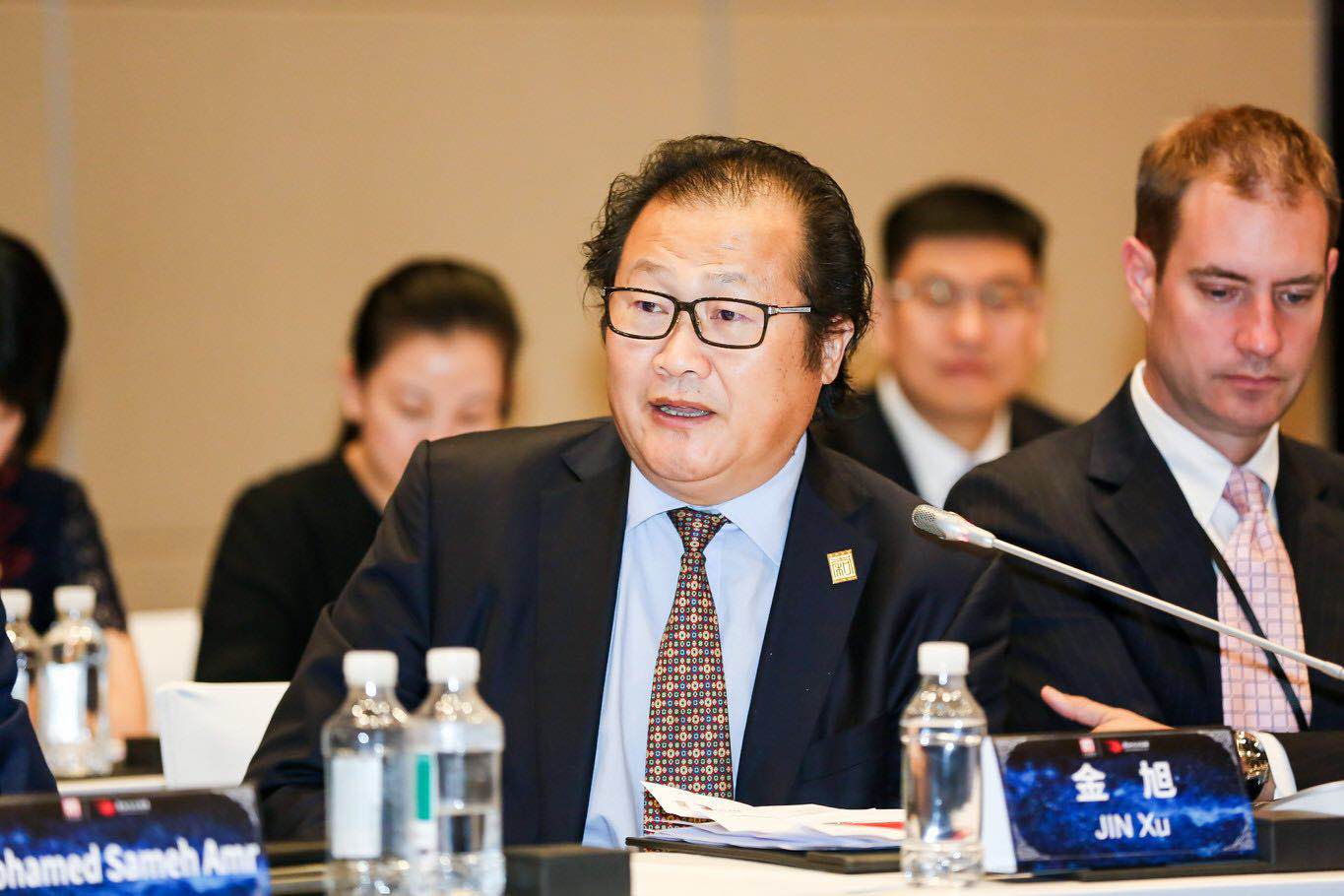
Senior Researcher of Taihe Institute and Former Counsellor of the Chinese Embassy in the UK, JIN Xu
JIN Xu, Senior Researcher of Taihe Institute and Former Counsellor of the Chinese Embassy in the UK, approached the subject from a micro standpoint, analyzing the differences between British culture and American culture and advocating that we should act wisely when addressing the international conflict rather than give way to our feelings.
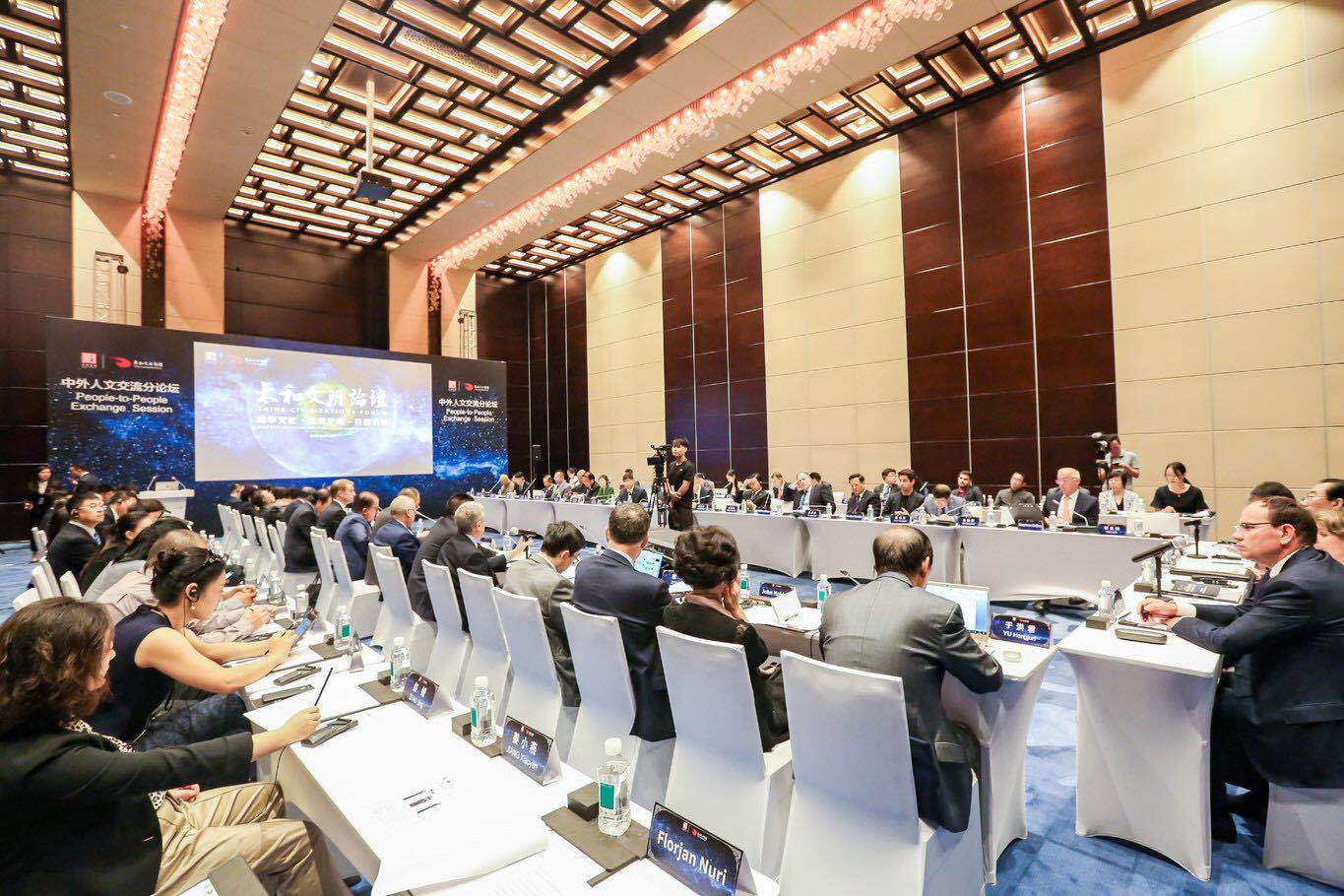
The discussions of the People-to-People Exchange session of the 2nd Taihe Civilizations Forum was inspiring and insightful. Participants from different walks of life contributed their experiences and wisdom towards a complex issue. In his summary speech, the session chair, WU Hailong, pointed out that today’s profound changes in the global landscape requires serious adjustments to the relations between countries. The new situation coupled with rapid technological advancements make it even more important to promote exchange between counties and between China and the world. People need to “kindle a new candle or even a torch” that will help them find better routes in our quest for common values and global harmony.
For more information, please click: www.titcf.org
-

- China-US trade war not yet at climax 18 September , 2018
-

- Comparing SCO to NATO inappropriate 16 September , 2018
-

- Sustainability and climate action: overcoming psychological ... 11 October , 2018
-

- 2018 Taihe Civilizations Forum Content Highlights 15 April , 2019
-
2018 Content Highlights
-

- Rashid Alimov Secretary-General of the Shanghai Cooperation Organization(2016-2018).
-

- Mohamed Sameh Amr Professor of International Law Department at Cairo University. He is also a ...
-

- Irina Bokova Distinguished Fellow of Taihe Institute, Director-General of...
